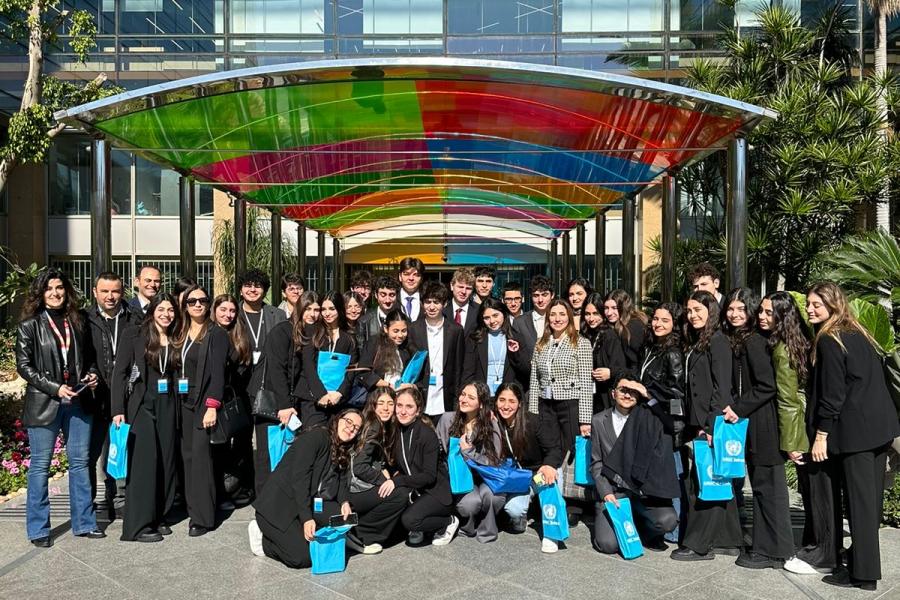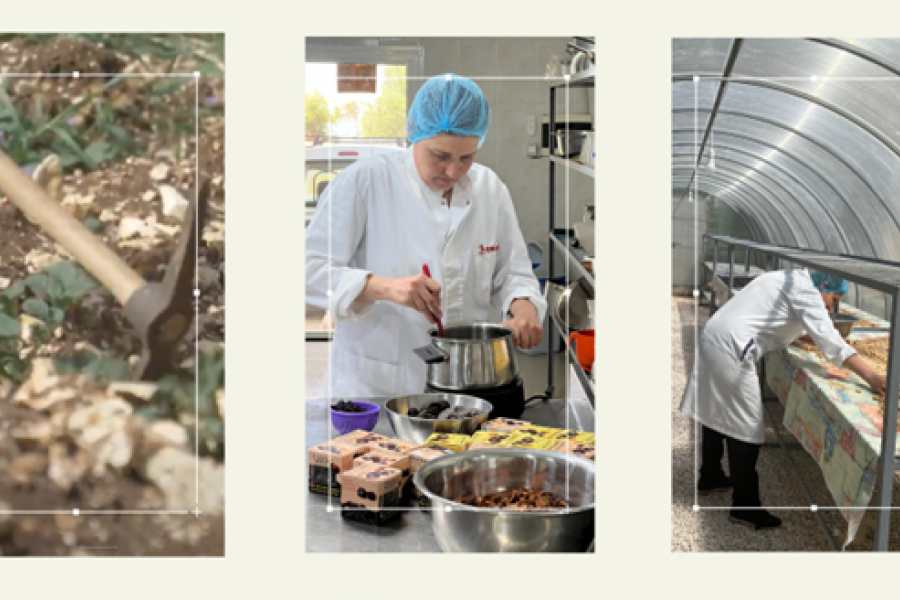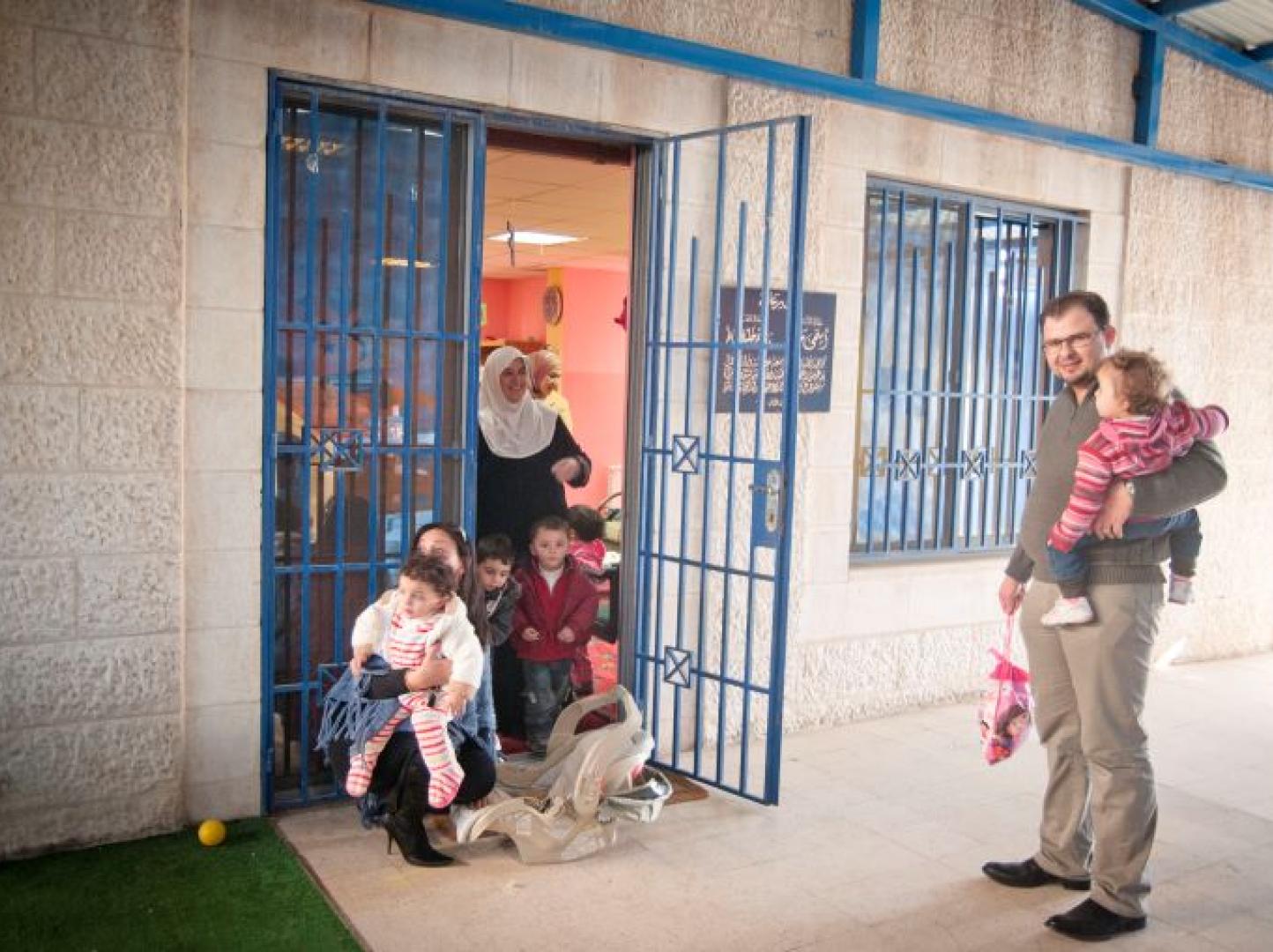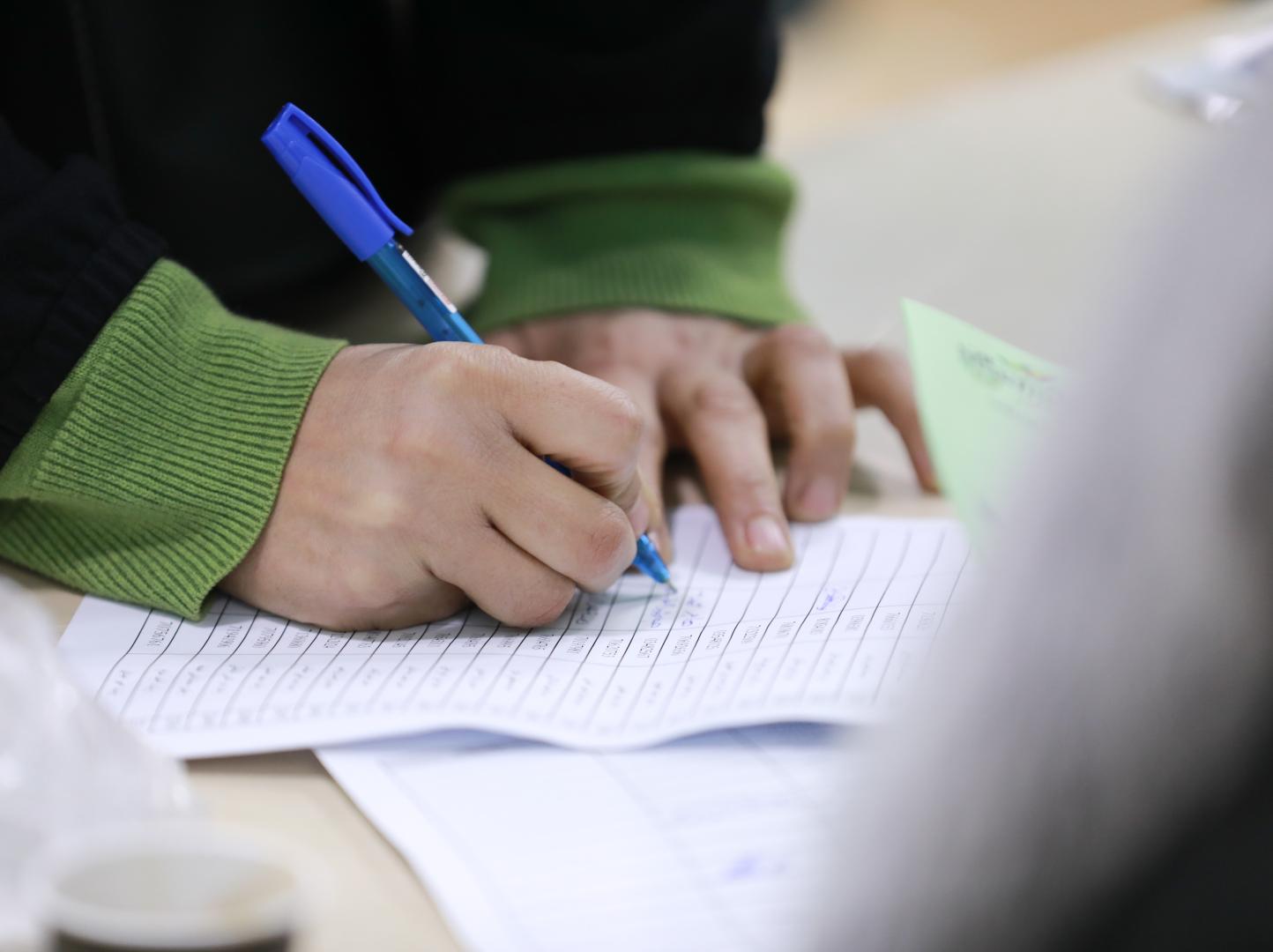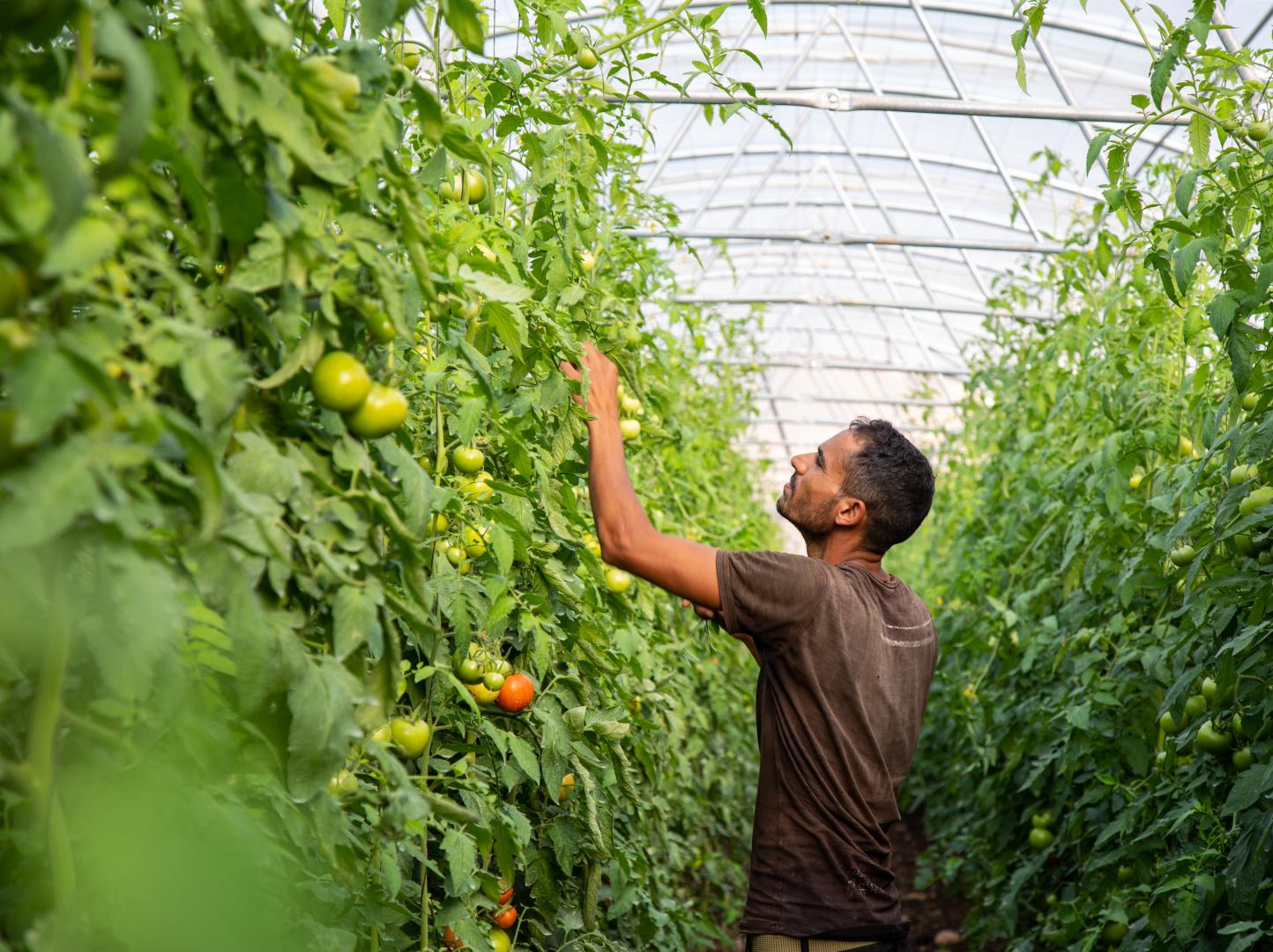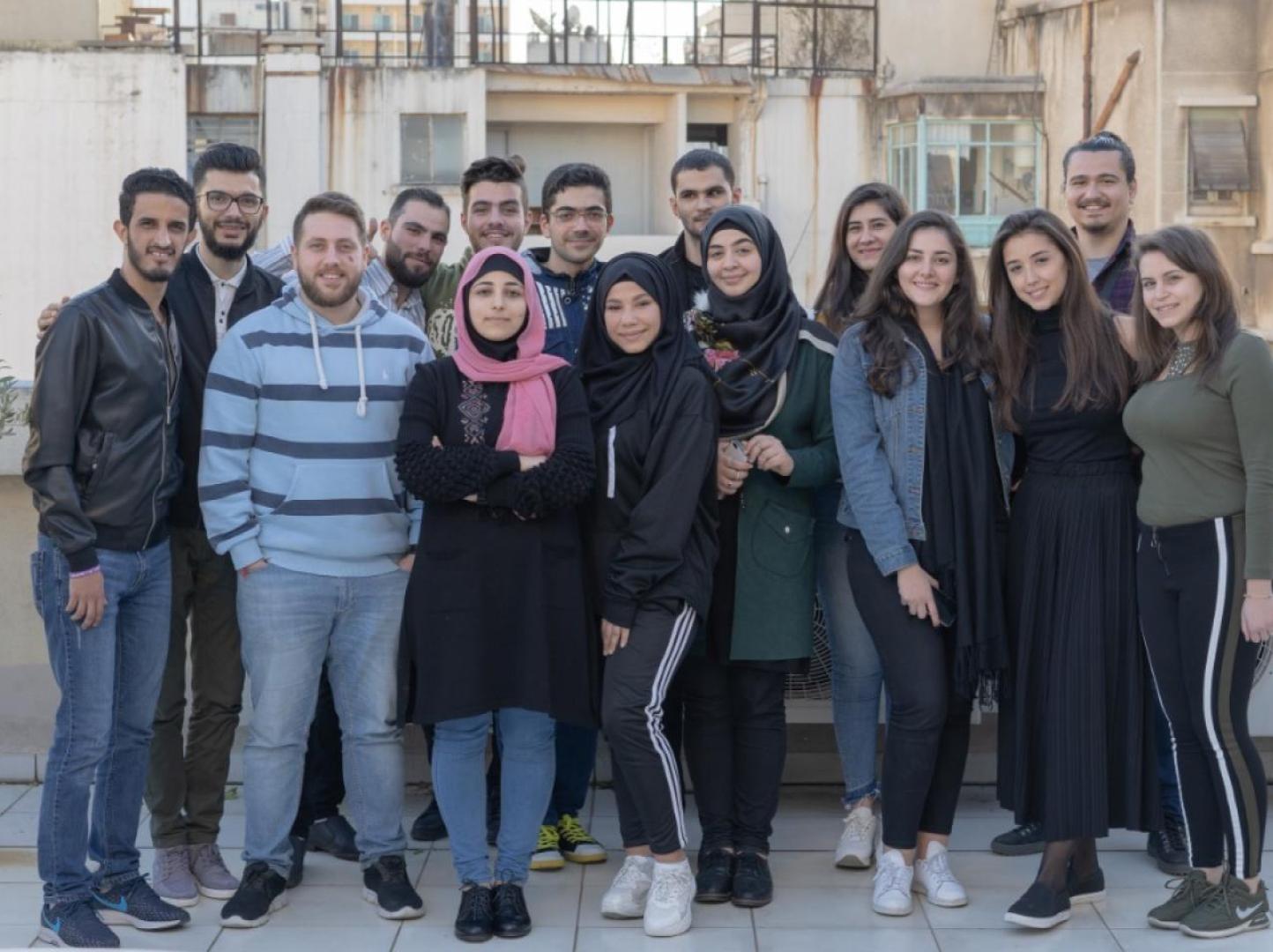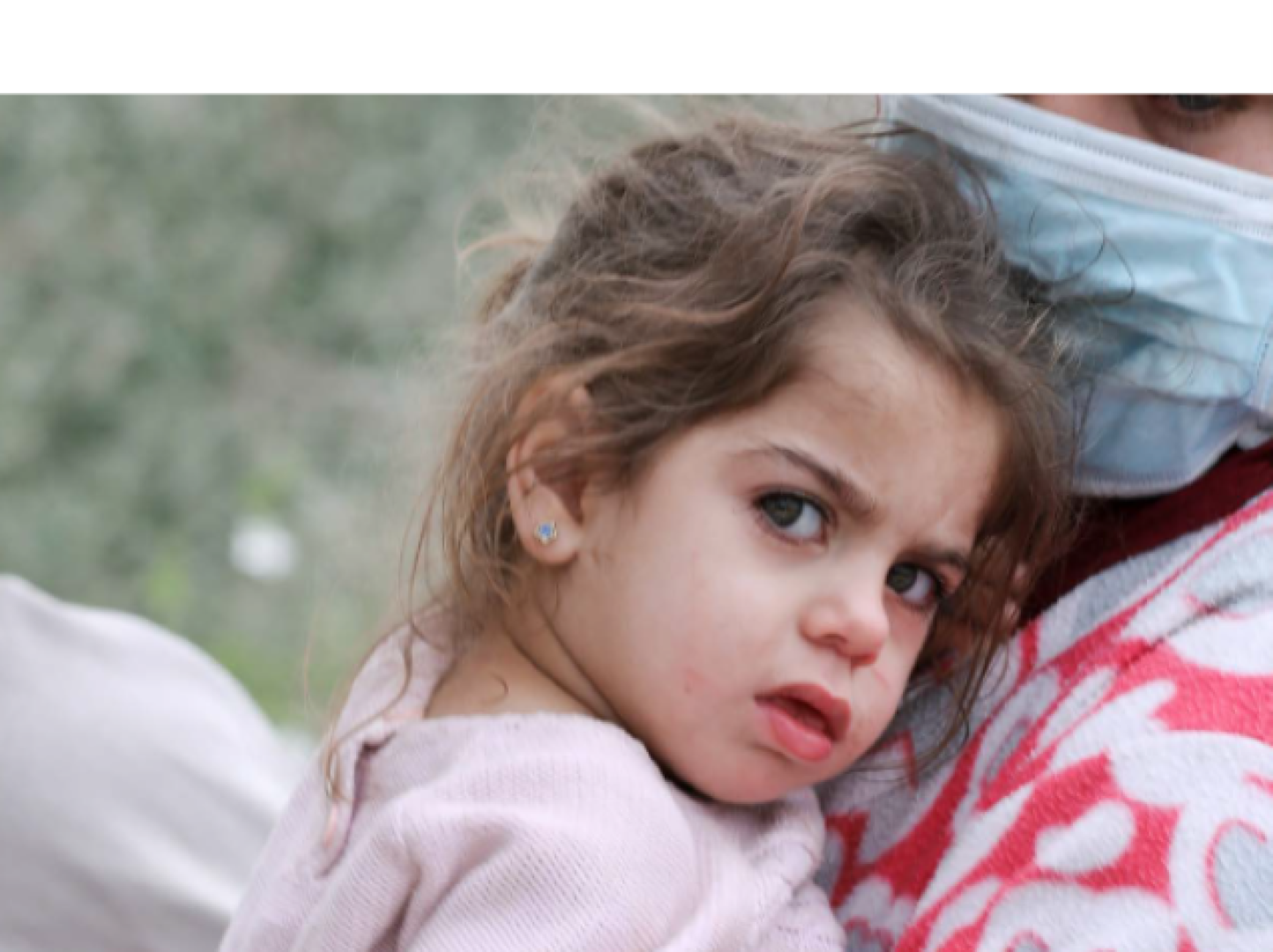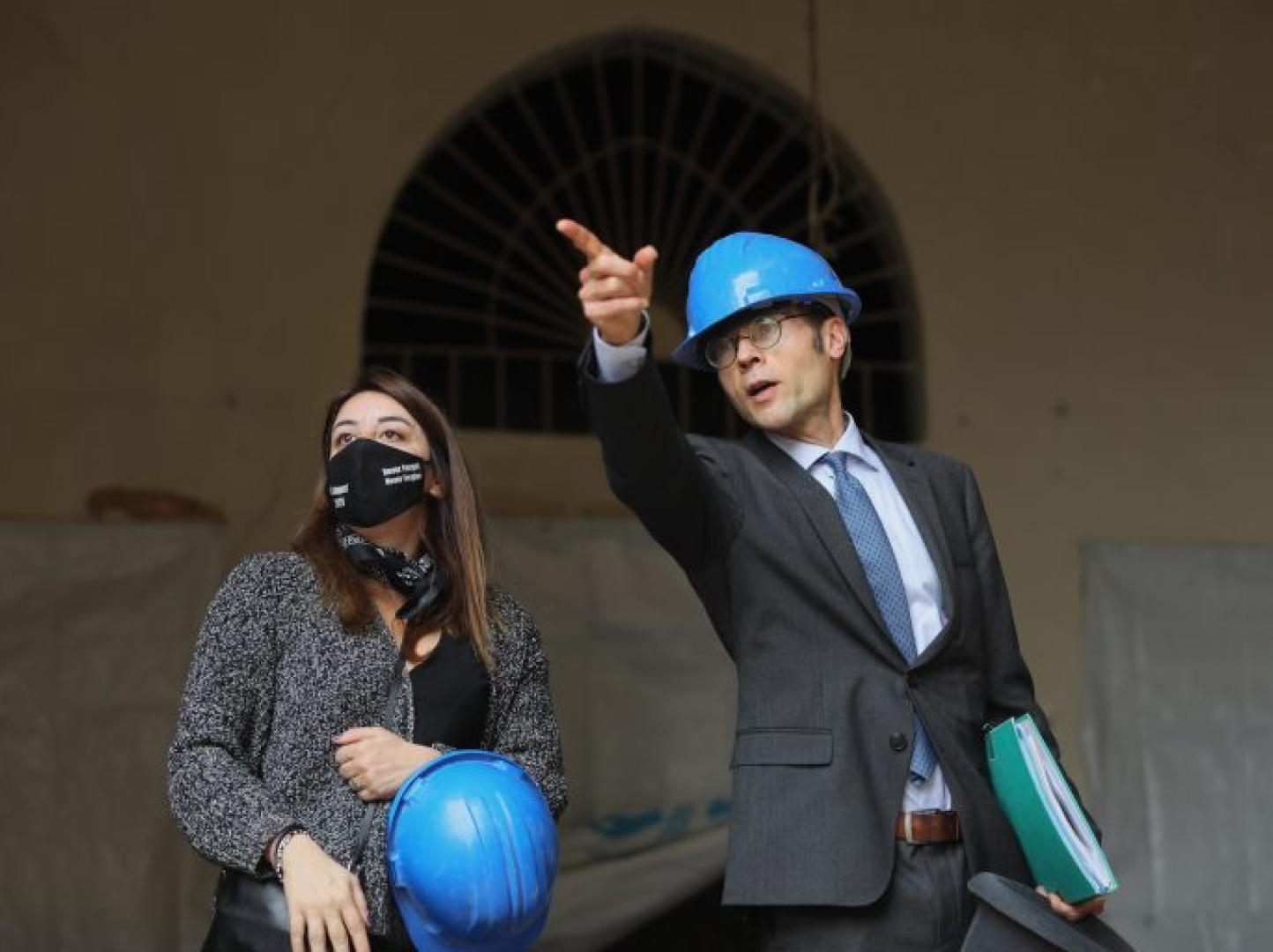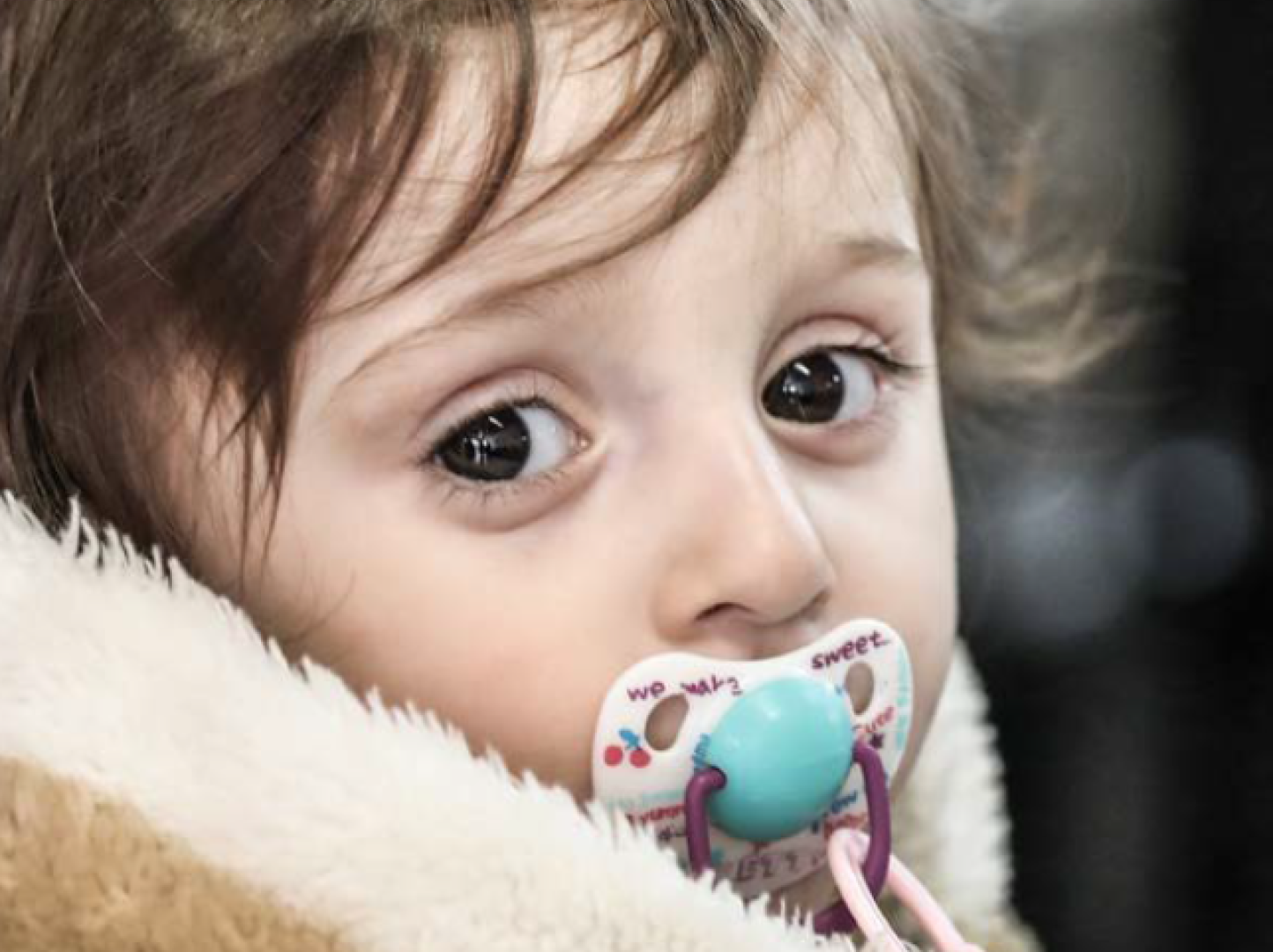Latest
Press Release
23 April 2024
The European Union and United Nations improve the social and economic functions in Bickfaya-Mhaydseh
Learn more
Press Release
22 April 2024
Strengthening child-friendly justice in Lebanon
Learn more
Press Release
16 April 2024
Celebrating Results of the Joint UN Productive Sectors Development Programme
Learn more
Latest
The Sustainable Development Goals in Lebanon
The Sustainable Development Goals are a global call to action to end poverty, protect the earth’s environment and climate, and ensure that people everywhere can enjoy peace and prosperity. These are the goals the UN is working on in Lebanon:
Story
14 September 2023
UN Lebanon Supporting Firefighters’ Mission in Saving Lives
“When we receive a rescue call, all we ask about is the fire site, neither caller identity nor nationality matters to us,” says Oussama Al Abouchi, sergeant at Al-Fayhaa Fire Brigade.
Al-Fayhaa Fire Brigade located in the northern town of Tripoli, is a place that sergeants Oussama Al Abouchi and Hassan Zoabi call home. A home in which they endured living conditions that seemed a world away from the comfort they deserve.
“This place was uninhabitable. We had no electricity, no hot water, no basic commodities,” Hassan says.
They carried out their missions despite the hardships. “We used to finish our missions and go shower at home,” says Oussama. “There was a lack of and shortage in equipment, machines, staff, and trainings,” says Dima Homsi, Director of Urban Community Al-Fayhaa.
The lives of firefighters saw a dramatic change after the newly rehabilitated and equipped building that is the result of a joint initiative ‘The Municipal Empowerment and Resilience Project’ by the United Nations Development Programme (UNDP) and the United Nations Human Settlements Programme (UN-Habitat). It is being implemented in partnership with the Ministry of Interior and Municipalities (MoIM) and funded by the European Union (EU).
Walking through the recently revitalized building, “It’s like we moved from a primitive life to a civilized life,” Hassan says.
“The rehabilitation started from scratch and covered all aspects such as electricity and sanitary. They even provided furniture and beds and they will be providing a sports hall,” Oussama says.
The transformation, however, doesn't end with walls and ceilings. New equipment was provided such as firefighting trucks, escape ladders, portable road safety barriers, fire extinguishers, protective jackets, trousers, hoods, and boots, in addition to a long list of firefighting and sports equipment. "Now, we can respond faster, cover more ground, and make decisions that can save lives,” Oussama says.
The rehabilitation hasn’t included physical enhancements only to the fire brigade but it extended to include hands-on trainings as well. Training sessions on firefighting techniques and life-saving procedures have become a cornerstone of the brigade's routine. Al Fayhaa Fire Brigade Firefighters have received specialized training in first aid from the Lebanese Red Cross and advanced firefighting techniques from the civil defense. They were also trained on mapping and inspection of buildings in four selected pilot areas to enhance at later stages public safety in the four cities members of the union.
“Trainings we received largely benefitted us on the field. We are now better equipped to handle challenging scenarios during fire incidents and rescue operations.” “We learned new techniques and methods; some approaches we used to think were right, proved to be wrong,” Hassan and Oussama say respectively.
Notably, over 450,000 residents across the four cities of the Urban Community of Al-Fayhaa, including Tripoli, Al-Mina, Al-Beddawi, and Qalamoun benefit from the rehabilitated and equipped fire brigade building.
“Our mission is to save people's lives and properties; It remains unchanged, but our ability to fulfill it has evolved”, says Oussama.
Within the current unfolding crisis, UN Lebanon with generous support from the European Union is supporting local authorities in maintaining basic services under this project. However, the crisis has majorly affected all segments of society including firefighters. “We are grateful for the UN’s support, but we lack financial support and health benefits. Sometimes we cannot afford the cost of the trip to the brigade,” Hassan says.
CHECK OUT THE VIDEO STORY BELOW.
1 of 5
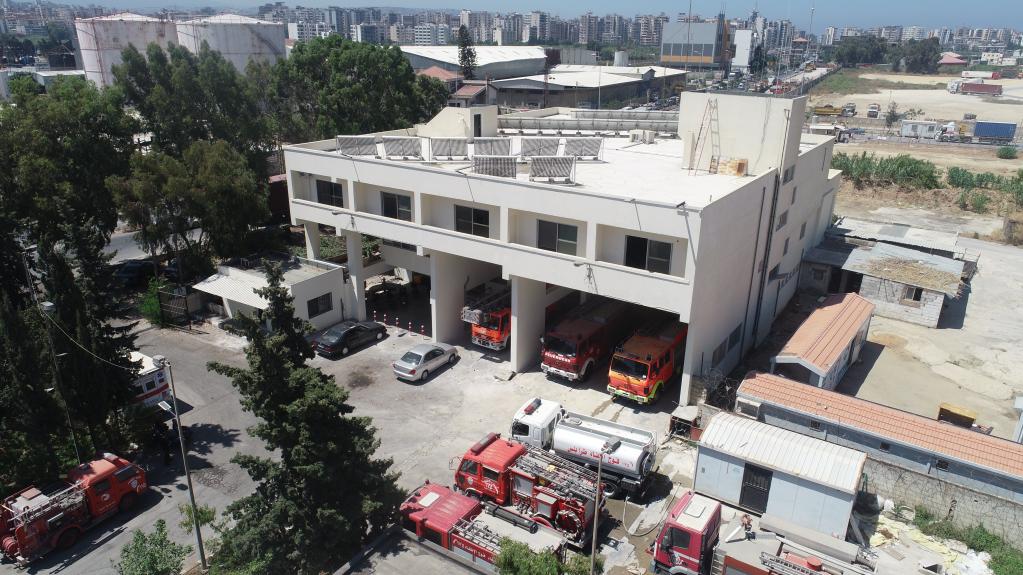
Story
29 August 2023
Access Kitchen – Women helping their communities & advocating for the rights of Persons with Disabilities
In a calm neighborhood nestled between the busy streets of Mar Mikhael in Beirut, a heartwarming haven known as ‘Access Kitchen’ flourished. It is Lebanon’s first community kitchen led and run by a group of women with disabilities. It provides income-generating jobs for 58 women and offers daily 138 hot meals to vulnerable people in nearby areas.
When you enter the kitchen, the aroma of freshly baked dreams and the sizzle of determination create the perfect recipe not just for meals, but for the empowerment, inclusion, and boundless potential of the women working in the kitchen.
Women of all ages, some with various disabilities, and some caring for family members with disabilities meet at this kitchen, each bringing their unique skills and stories to the table.
This inclusive space is the result of a partnership between UN Women and the Lebanese Union for People with Physical Disabilities (LUPD), established by the Government of Austria as part of a joint project with the United Nations Children's Fund (UNICEF), “Emergency Livelihoods for Affected Marginalized Populations in the Beirut Explosion Area,”. The support was continued with the support of the Government of Japan and the Government of Australia.
Paving the way
Sylvana Lakkis’ journey towards becoming an advocate for the rights of persons, particularly women with disabilities started at a young age. “I realized at an early age that the hardship I was facing were not solitary battles but were related to unclaimed rights,” explains Sylvana.
Sylvana has a disability resulted from Polio, she, herself has experienced first-hand discrimination because of having a disability. A notable moment for Sylvana was after graduating from college, only to find that employment opportunities were almost non-existent for persons with disabilities. “This is where I kicked off and began the activism journey,” she says.
Sylvana became the President of the Lebanese Union for People with Physical Disabilities (LUPD). Motivated by her own journey, coupled with the plight people with disabilities face in Lebanon, the prevalent biases they confront and the Beirut blast resulting in disabilities, she made it her mission to foster inclusivity. This is how Access Kitchen was born.
“Access kitchen, which includes women with different types of disabilities coming from various nationalities and different backgrounds, is an opportunity that paves the way towards inclusive employment and therefore an inclusive economy,” she says.
Sylvana endeavors to connect with women living with disabilities in Lebanon on both a personal and professional level. She reaches out to them directly or engages with organizations and municipalities, particularly in the aftermath of the Beirut Blast.
Driven by determination
Luna Yammine is a spirited graphic designer. She has a mobility impairment and has faced various challenges, specifically at the community and family level around social and gender norms. “I was born in a society that marginalizes persons with disabilities and this created many challenges for me. In our society, women are already vulnerable let alone women with disabilities,” explains Luna.
Luna continued to struggle with the perceptions placed on her, especially when it came to searching for a job. “My parents rejected the idea of me joining the workplace, they wondered who is going to hire a person like me,” says Luna. Recognizing her right to work and driven by her determination, Luna did not lose hope and kept searching for job opportunities, until she joined Access Kitchen as a graphic designer.
With her keen eye for design, she lends her creative touch to the kitchen. She crafts vibrant posters and campaigns, spreading the word far and wide about this unique initiative that was bound to stir hearts and change lives. Luna is determined to prove that her disability is not a barrier to her talents, “I can work like everybody else and be an active community member,” Luna says.
This experience is benefitting her on many levels, “this project has empowered me, boosted my self-confidence, and enhanced my financial stability,” Luna says.
In a nearby corner of the same kitchen, there is Aya Ezzo – A woman with a visual impairment, who discovered Access Kitchen through an outreach Facebook post. It was Aya’s first-ever job, as a kitchen worker. She has embraced her tasks and become an integral part of this community.
“Access Kitchen changed my life; I became more independent physically and financially. I can pay my university tuition fees and offer financial help to my family,” Aya says.
The challenges Aya faced as a person with a disability were not limited to employment, she speaks about challenges at school, at university, and while moving around in the streets.
Aya is proud of what she has learned through this impactful experience, especially through sessions on disability and gender-inclusive rights, and the labor laws in Lebanon. “I now know my entitlements as a woman with a disability. I am more confident, and I can express myself without feeling ashamed of my disability.”
Be the change
Operating since June 2022, Access Kitchen became a vibrant hub of camaraderie and shared aspirations built on the common challenges of women. Its members empower one another and break down barriers with each day passing. “Not only did I exchange cooking-related knowledge with other women working in the kitchen but also ways to stand against obstacles”, Aya says.
“Sharing their individual experience on overcoming challenges and discovering solutions among these women became a valuable lesson for others, marking a significant step towards embracing inclusive employment. Access kitchen is one of the main ways to fight hunger and poverty and to contribute to Lebanon’s advancement,” Sylvana says.
“To all women out there who continue to face the challenges of discrimination and marginalization, believe in the power within you. Seize your rights with unwavering determination. Your potential to contribute, thrive, and stand on your own is boundless. Every and each one of you can be productive, active and ,independent. Be the change,” Sylvana sends a message to all women.
1 of 5
Story
18 July 2022
UN Lebanon Supports Women-Led Cooperatives: Sustaining Productivity Amid Consecutive Crises
"I enjoy teaching other women food processing techniques and helping my neighbors find income generating opportunities. A lot of women across Lebanon are doing the same thing," says Samira Zoughaib Akiki, 58, the chair of Al Atayeb cooperative located in Kfardebian town, north of Beirut, Lebanon. In 2004, Samira and some other women established Al Atayeb (The Delicacies) cooperative to support their local community.
Samira’s Early Days in Food Processing
Samira began her career as a French language teacher at a local school in Kfardebian before she decided to follow her passion for cooking. One year later, in 2003, Samira resigned from teaching to enroll in a training for sewing and embroidery that Young Men's Christian Association (YMCA) non-governmental organization (NGO) was organizing. As she interacted with more women, Samira realized that women villagers have very good food processing skills and that they are willing to share their knowledge. She worked with YMCA on introducing food processing workshops and eventually became a trainer in food processing. “Teaching other women food processing skills was my way of women empowerment. It also empowered me given that I was surrounded by generous women with a vision,” Samira says with a nostalgic tone.
The Cooperative Model
Although Samira enjoyed her work as a trainer, she was not fully satisfied; she wanted to do something more impactful for her community. "Knowing that locals obtain valuable agricultural and food processing skills and expertise, my colleagues and I decided to form a cooperative specialized in food processing. We believed that it would be the best business model because it helps create job opportunities for locals and divides profits equally among shareholders," Samira says.
Al Atayeb is a women-led cooperative specialized in producing Lebanese local and traditional food, such as citrus marmalade, fruit jam, fruit paste, and the famous Lebanese Makdous (Pickled eggplants in oil), and it follows the FDA criteria of food safety.
Today, the cooperative involves 13 women from various age groups who work in food processing. These women are also shareholders so they receive a share of the cooperative's profits, in addition to the salary they earn from working in food preparation and processing. “A cooperative serves the maximum benefit of the largest number of people possible, and it is a participatory form of group work that is rich with perspectives and ideas," she says.
The cooperative also supports farmers through buying their local crops and provides job opportunities to local workers who can perform necessary logistic and technical tasks that food processing requires.
UN Lebanon Supports Cooperatives
Similar to many cooperatives across Lebanon, Al Atayeb faced challenges that threatened its sustainability during the first months of the COVID-19 pandemic, when Lebanon was also reeling under the economic crisis. Not knowing how to counter the challenges, Samira and her partners learned that UN Lebanon was providing support to cooperatives across Lebanon and reached out for support.
UN Lebanon, with funds from the German Development Bank KfW, and through the UN Development Programme, mobilized 4.4 million USD to reduce the downturn impact of COVID-19 on cooperatives, Small and Medium Enterprise (SMEs), and farmers. Under this project, UN Lebanon supported 94 cooperatives from different villages in Lebanon such as Deir Al Ahmar, Fneidek, Qana, Harissa, and Lehfed, with a focus on women, by providing cash for work and in-kind support such as raw materials, equipment, and tools. At least 6,000 individuals in Lebanon benefitted from this project, which helped them cope with the consecutive crises: the COVID-19 pandemic, the financial crisis, and the notorious August 4 Beirut Port Explosion.
For Al Atayeb, "the UN provided monthly salaries for women to sustain their income, in addition to oil and sugar we use to produce our food, as well as the jars necessary for preserving produce," Samira says. "The type of assistance that the UN provided was very efficient because it addressed our financial needs; thus, replenishing our capital and compensating our losses. We were able to resume our activities at a time when many businesses were shutting down.”
By creating direct and indirect job opportunities, Al Atayeb cooperative has been a key factor in helping many families in Kfardebian survive the crises, making women proud of themselves and their community. "Our cooperative represents the values we believe in. We work with passion. We help our community and serve the public good," Samira says with a pride in her voice.
1 of 5
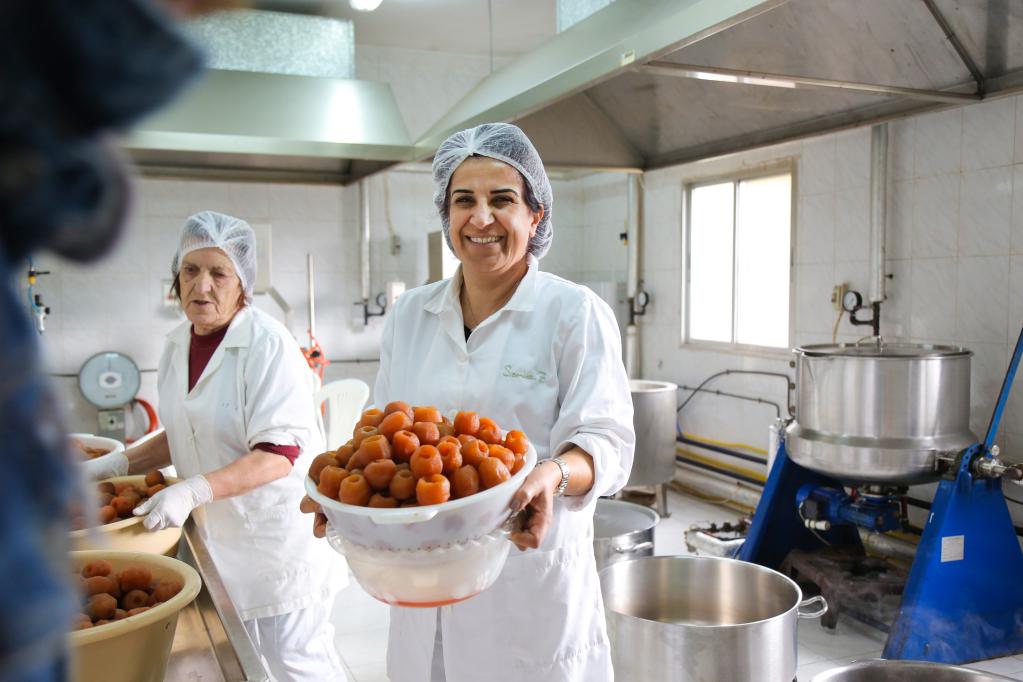
Story
28 September 2022
UN Lebanon Greening Restaurants: A Business with an Impact
"Generating profit might be easy, but it's hard to reach a point where you're proud of your work," says Aline Kamakian, 53, owner of Mayrig Restaurant in Beirut, Lebanon.
Over the past nine years, Aline has been working on reducing the environmental footprint of her business, and today she is transforming Mayrig into a zero-waste project with passion, perseverance, and hard work. Instead of throwing away leftovers, plastics, and glass bottles together in landfills, Aline transforms food waste into compost that nourishes plants and plastics and glass into new useful items despite the challenges.
From a Father's Dream to a Mother's Recipe
Aline launched Mayrig in 2003 to fulfill her father's dream of having a restaurant that serves authentic Armenian food. She has been working with Armenian mothers on creating recipes and platters and ended up calling the restaurant "Mayrig," which means mother in Armenian. "The restaurant's name salutes mothers for their efforts to preserve Armenian culture and traditions, and the business aims to support Armenian mothers by offering them job opportunities and ways to generate profit," Aline explains.
With wit and kindness, Aline convinced her employees about the importance of working towards greening her restaurant: "When we first started sorting, my employees thought that the extra tasks were inefficient and exhausting. But, with time, they started realizing the importance of sorting for Lebanon's environment. So today, they're keen on sorting and treating waste like we do."
Aline handled this process alone for nine years until the financial crisis hit Lebanon in 2019. With the devaluation of the Lebanese currency, business owners started moving towards reducing costs. As a result, the cost of sorting, composting, and recycling became an extra burden for Aline's business, and greening Mayrig was thus compromised for the sake of other priorities. "The high expense of transporting the food waste into the composting facilities threatened the sustenance of the initiative," Aline explains.
UN Lebanon Supports Green Restaurants & Circular Economy
Before giving up on her dream, Aline's last option was to resort to funding opportunities. Fortunately, UN Lebanon, through the United Nations Environment Program (UNEP) Regional Office for West Asia based in Beirut, was looking for restaurants in Mar Mikhael – Gemmayze area to partner with on targeting the waste problem in Lebanon. Under this project, which is part of the SwitchMed II Programme funded by the European Union and implemented in collaboration with local civil society organization NUSANED between July 2022 and June 2023, the UN is supporting Mayrig by collecting their food waste. "I no longer have to worry about managing the composting of food waste because someone is taking care of that," Aline explains.
Under the same project, UNEP regional office is also partnering with seven other restaurants in the same area by providing, through NUSANED, advisory services, and technical support around plastic waste management, food waste management, greening restaurants, and ways for allowing circular businesses to flourish.
In addition to restaurants, the UN is also working with households to raise their awareness on the importance of plastic prevention, reuse and recycle and incentivize them to contribute to circular economy. “For each kilogram of plastics that households put in our bins, they receive points that eventually become shopping vouchers at local businesses in the area, and this is one of the incentive mechanisms we will be using for the purpose of encouraging waste prevention under this project. This way, we are supporting families by increasing their purchasing power and local businesses by promoting their sales”, says Rasha Sukkarieh, the programme manager at NUSANED. She adds: “By doing this, we are creating a circular and more sustainable economy in the area.”
Today, Mayrig alone produces around 20Kgs of food waste and 4 to 7 Kg of plastic per day. In a country struggling with waste management, Aline hopes this initiative would reduce the negative impact of restaurants on the environment. "Multiply these numbers by 3000, which is the estimated number of restaurants in Lebanon. Imagine what all this plastic and waste are doing to our environment and health when dumped in the sea and on land?" Aline says.
Greening Restaurants is Colorful
In addition to reducing Mayrig's environmental footprint, Aline also relies on recycling to decorate her restaurant. She is turning wine bottles into colorful decorative chandeliers hung on the ceiling that cannot be missed when you enter the place. She also decorates her terrace with a green wall made from recycled plastic. For Aline, protecting the environment is vital for sustaining her business: "When you protect the environment, encourage tourism, attract new businesses, and sustain your business, it's a cycle!" Aline says.
1 of 5
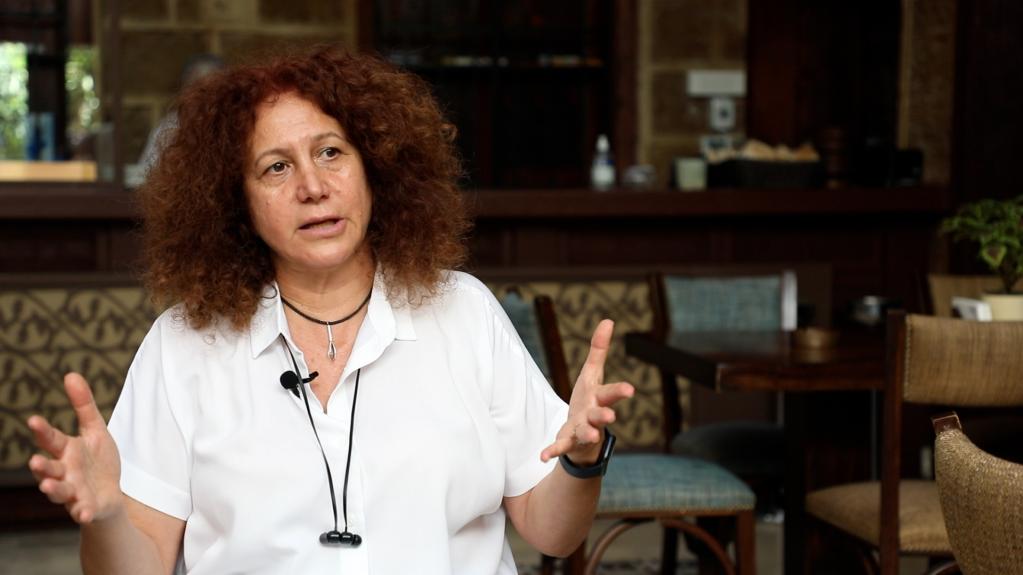
Story
02 December 2022
UN and University Students in Lebanon Team Up in a Vigorous Debate on SDGs, triggering Young Voices of Change
“The Way We Shop: Is it Sustainable?” A probing question that spurred a flurry of arguments and opposing views from around 100 young students on Thursday 24 November. The debate took place at the heart of the Holy Spirit University of Kaslik (USEK) in a green environment made up of recycled materials and environmentally friendly furniture.
Two groups of young students, composed of 10 young men and women each, played the role of opponents and proponents of sustainable lifestyles and shopping habits that help curb climate change.
“Each one of us has a responsibility vis-à-vis our mother nature and can take simple actions that help save our planet,” said a third-year USEK student who volunteers in the university’s Green Committee that was established to advance USEK’s environmental management and engage students in sustainable initiatives. “Personally, I’m leading an upcycling initiative of chips and chocolate wrappers that can’t be recycled, and turning them into aprons, pouches, and bags that I eventually sell to help people in need with whatever income I get,” she explained.
Other similar initiatives were enthusiastically shared by other young students as part of preserving Lebanon’s environment and supporting sustainability efforts. “It’s time to become more conscious about our habits in food and fashion, and to stop being intellectually lazy!” asserted another proponent student favoring sustainable lifestyles over unsustainable harmful consumption habits.
The session started with an interactive informative presentation delivered by UNIC Beirut on the Sustainable Development Goals (SDGs) and a dialogue with the youth on their perceptions of the SDGs and the resulting actions they were taking to implement the Global Goals in Lebanon, such as reducing the use of plastics, shopping consciously, carpooling and others. The learning session featured a video on the UN, an animated video on the SDGs, and a PR stunt on recycling produced under the UN Communication Group #TakeAStep media campaign on the SDGs.
The students’ debate was followed by an engaging discussion and presentation by experts from the UN Environment Program Regional Office for West Asia focusing on climate action, resource efficiency, and sustainable consumption and production. The presentation was followed by a Q&A session that helped expand students’ knowledge of the global goals and explore effective ways to reduce plastic, food, and fashion waste, including through reducing, reusing, repairing, and recycling, as well as taking action on impactful environmental issues.
The session ended with pop quizzes administered by both UNIC and UNEP representatives to test the level of acquired knowledge among the attending students. UN-branded promotional items were awarded to those who provided correct answers.
“We really enjoyed it! It was fun and informative at the same time”, said a few young attendees, expressing their appreciation and interest to have more interactive specialized sessions on the SDGs and to collaborate on advocacy projects with the UN in the future.
1 of 5
Story
11 March 2024
Deputy Secretary-General calls on UN Leaders to accelerate SDGs and boost hope in Arab States
The meeting - taking place on the sidelines of the Arab Forum for Sustainable Development- focused on assessing RC’s progress in supporting governments’ efforts to advance the Sustainable Development Goals (SDGs) and foster regional cooperation amidst unprecedented regional challenges.The meeting focused on assessing RC’s progress in supporting governments’ efforts to advance the Sustainable Development Goals (SDGs) and foster regional cooperation amidst unprecedented regional challenges. Driving changeMs. Mohammed underscored the vital role of RCs in supporting governments to implement commitments made at the 2023 SDG Summit and in advance key transitions. She emphasized the need for policy reforms, developing catalytic initiatives, and forging partnerships for substantial financing to accelerate SDG progress.“Amid the monumental challenges facing the region, we have a professional and moral obligation now more than ever to support the countries we serve, with all resources we have, in accelerating progress towards the SDGs,” she said.Ms. Mohammed was joined by Under-Secretary-General for Policy, Guy Ryder, who highlighted the importance of the upcoming Summit of the Future in addressing current and future challenges and opportunities.Navigating challengesThe regional meeting provided an overview of UN country teams strategic positions identifying opportunities and challenges for SDG acceleration. Political instability, financing constraints, and capacity gaps remain persistent obstacles, but UN teams are demonstrating flexibility in programming and inclusive stakeholder engagement to overcome them.The RCs shared initiatives and experiences supporting host governments on their 2023 SDG Summit commitments as they prepare for the Summit of the Future. For instance, UN teams in High-Income Countries are rethinking their engagement and partnership strategies to better tailor UN support, including through diversifying partnerships and promoting in-country capacities.In fragile and conflict contexts, Resident Coordinators stressed the importance of upholding the principles of the UN Charter, underscoring the right of every citizen to development.“The context of multifaceted crises facing Lebanon, makes it imperative for us to find a path towards development, towards movement on the SDGs. At this critical juncture, we are working with the Government and other key stakeholders to find the opportunities amidst the current challenges,” Resident and Humanitarian Coordinator in Lebanon, Imran Riza said.Despite challenges, the broader region demonstrates a similar commitment to peace and development.“Jordan is a model environment for the Secretary-General’s New Agenda for Peace, for the acceleration of the SDGs as a support to sustaining peace and stability in a volatile region,” UN Resident Coordinator in Jordan, Sheri Ritsema-Anderson stated. “As hope in the region is in short supply, the Summit of the Future offers Jordan and the entire Arab region a unique opportunity to contribute to the new global Pact for the Future and create hope that the future will ensure equal rights for all people worldwide,” she added. The discussions highlighted the need for stronger global and regional cooperation to drive real change at the country level, paving the way for accelerated progress towards the SDGs.“By focusing on areas of national priorities and developing transition strategies that align with both local and global development goals, we can redefine our role and impact,” said DCO Regional Director for Arab States, Ms. Barbara Manzi. “Our collective efforts, underpinned by the 2030 Agenda, represent a beacon of hope and a testament to the power of partnership and strategic engagement,” she concluded.
1 of 5
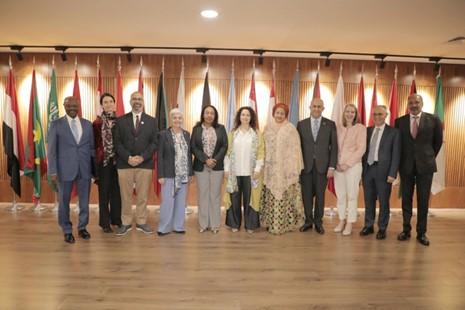
Story
28 February 2024
Developing Urban-Farming Capacities of Youth and Women of Tripoli
Walking through the narrow streets of Shalfeh, a vulnerable urban community in the Abu Samra neighbourhood in Lebanon’s northern city of Tripoli, where dreams of a better life seem distant, you reach a green oasis amid urban chaos. In Shalfeh, live Yamama Al Yakhni and Omar Khaled. Yamama is a mother of four who did not complete her education but has always dreamt of studying and graduating. Yet, the daily grind of life, caring for her children, and navigating the complexities of urban living had made those dreams seem almost impossible. As the heavy burden of unfulfilled ambitions crushed down on her, Yamama found herself teetering on the edge of depression. “I left school and got married early. I took care of my family. Every time one of my children graduates, I have mixed feelings. I am happy for them, but also sad wondering if I ever will study and graduate?” Yamama says.Omar is a university student who invested his time in studying, but this came with a downside as he spent most of his time at home; hence, negatively affecting his mental well-being. “In this area, people my age tend to waste their time on useless activities. I did not want to follow in their footsteps.” Omar says.It was in these moments of difficulty that both Yamama and Omar first heard about the project “Marjeh”. Marjeh is a multi-sectoral project that aims to promote urban farming and adequate water and renewable energy solutions within the urban community of Shalfeh located in Abou Samra, Tripoli by the United Nations Human Settlements Programme (UN-Habitat) funded by the Government of Japan.The project includes the development of women and youth’s skills in urban farming with support from Dar Al Zahraa Organization; establishment of an urban farm in the area for trainees to apply their knowledge with support from the United Nations Food and Agriculture Organization (FAO) and the Islamic Awkaf Department in Tripoli; provision of clean water and renewable energy to public facilities such as schools and a health dispensary; raising community awareness with regards to improving food security and hygiene and sanitation within the community and at home in the neighbourhood of Shalfeh. From Despair to EmpowermentWith newfound determination, Yamama and Omar registered in the project’s sessions to gain proper skills and techniques to undertake urban farming activities such as proper planting, watering, harvesting, composting, packaging, and marketing. Acquiring these skills helps them improve their self-reliance and become equipped to generate income and therefore improve their living conditions. As she was attending daily theoretical and practical sessions within this project, Yamama gained knowledge and skills related to cattle breeding, poultry farming, beekeeping, and cheese-making. “I now know how to make different kinds of cheese like halloumi and mozzarella. I even learned how to make ketchup and nuggets.” “I acquired skills as we learned to cultivate crops efficiently, and trim trees, and we identified agricultural misconceptions related to agricultural practices that were spread in our area. The expertise-sharing made it a rich experience; we were like one family,” Omar says.Yamama felt a sense of purpose she had longed for. “I re-lived the childhood school experience. It’s a very nice new environment, I have mentors and mates. I get up early in the morning to prepare myself with a goal to achieve. I am happy that I have a sense of achievement and purpose,” Yamama says.Omar found the haven he was searching for away from his studies, “I met new people, we engaged and initiated discussions, talks, and activities under this project. We exchanged excitement and enjoyed our time while working together. Activities did not feel tiring but fun instead.” Participants like Yamama and Omar upon the end of the first and second phases of this project graduated and received kits to help them sustain the effect of the trainings they attended and equip them with the right tools to take it forward. Omar, who has dreams of making a tangible impact on his community, had an idea for a personal project. Through the agricultural trainings he undertook and the friendships he built and will count on, he is now capable of proceeding with his project. “With the guidance of mentors and access to modern techniques I acquired skills I can use to proceed with this project,” Omar says.“I was happy, and this was reflected in my well-being. I achieved my dream of graduating. I requested the cheese-making kit as a graduation gift and I plan to start from my own house a project to bring additional financial income to my household,” Yamama says. A fresh startIn the heart of the city, this urban farming intervention has become a green oasis of hope, fostering growth and empowerment.“I am more confident and empowered. Before the project I was devastated, now I feel a sense of purpose. When I reached the age of 40, I thought this was the end; quite the opposite now. I say this is the starting line,” Yamama says.“Marjeh project pushed me to get started,” Omar says.
1 of 5
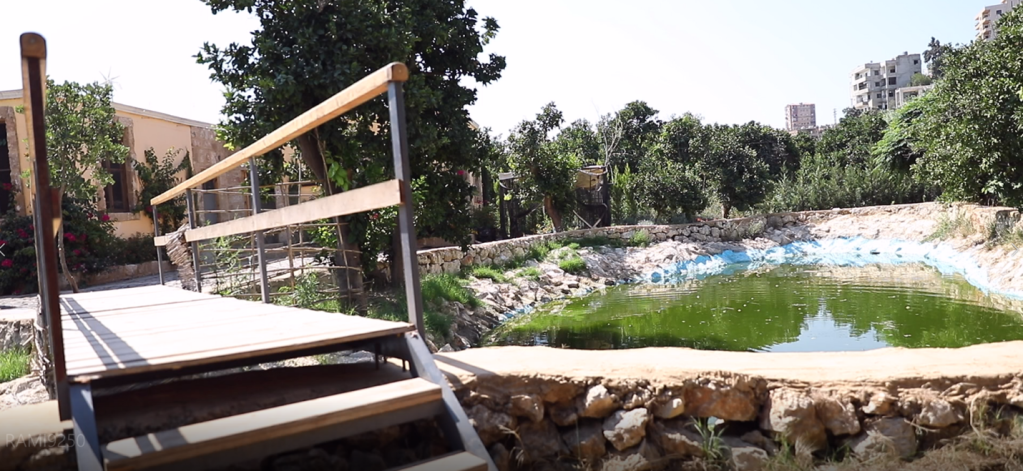
Story
29 February 2024
Young school students engage with various UN agencies on SDGs and work of UN
On February 27, 2024, UNIC Beirut organized, at the UN-House in Beirut, briefing sessions to a group of Grade 12 students from the “React” club at Jesus and Mary school in Rabweh, northeastern Beirut to learn more about the implementation of Agenda 2030 in Lebanon, particularly SDGs 5 and 16.The day began with the screening of “Dreaming of Lebanon,” a virtual reality (VR) documentary that offers an immersive glimpse into the aspirations of young Lebanese amidst challenging times. Produced by the Office of the United Nations Special Coordinator for Lebanon (UNSCOL) and the Innovation Cell at the United Nations Department of Political and Peacebuilding Affairs (UNDPPA), the film used 360-degree technology to bring human-centered stories of resilience and hope to life.“This is the first time I watch a VR. What I liked the most about it is that we have the liberty to pick and choose the questions that we want to address. I am dazzled by this new technology!” Celine Atallah said.Students were particularly moved by the narratives of Lebanese citizens Batoul Hakim, Josephine Abou Abdo and Rafik El Hariri who were featured in the documentary. Commenting on the story of Batoul, Michel Atallah said: “The testimony of Batoul, a Lebanese young chemist who is advocating for a greener and healthier Lebanon has inspired me. She’s like an idol, empowering students like us to change our community.”For her part, Andrea Hanna said: “It was a very nice experience! I watched the story of Josephine, a Lebanese mom who was able to co-found a community hub and relief center named the ‘Nation Station’ kitchen, despite all the challenges she faced in the aftermath of the Beirut August 2020 port explosion.” “The animations included in the VR reminded us of the vibrant Beirut that we used to know. The VR transported us to an imaginary world, letting us envision the Lebanon we want,” Cherly Rammouz considered.In turn, Nathalie Saba, the president of the “React” club, commented on the story of Rafik, saying: “Rafik is a young designer from Tripoli who dreams of a safe Lebanon where he can walk without having the fear of being robbed. We share the same dream: the dream of living in a safe and secure country.” Pascale El-Kassis, Senior Strategic Communications Officer at UNSCOL, explained to the group that UNSCOL is a political mission trying to introduce innovation into its diplomatic work, by finding new tools to get the message across and to be able to achieve its mandate. She also held an interactive session on diplomacy and conflict prevention during which the students learned more about UNSCOL priorities, namely: conflict prevention (Resolution 1701), effective and strong state institutions, shielding Lebanon from regional conflicts, and support through a “whole of Lebanon approach”: peace and security, development, stabilization and human rights. UNSCOL’s discussion around the VR and presentation on SDG 16 was followed by a briefing on UNIC Beirut’s work and #TakeAStep, UN Lebanon’s integrated communications campaign provided by Cynthia Darrous Khoury, UNIC Beirut’s Officer-in-Charge. A few videos from the campaign were also screened. GBV Programme Assistant Maya Hammoud tapped on SDG 5 in general and the work of UNFPA in Lebanon in particular. She also encouraged the youths to be part of the Y-PEER Network (Empowering Young People to Empower Each Other) that aims to “empower young people to empower each other.” In her presentation, Communications and Advocacy Officer at UN Women Lebanon Roula Rached tackled the work of the entity in Lebanon across humanitarian, developmental, peace and security spaces. She explained how womenomen are under-represented in key peace and security institutions.. In the Q&A session, the students asked the expert how UN Women contributes to empowering women and help them claim their rights. She explained that the entity partners with a number of INGOs, NGOs, media outlets, public figures, as well as the National Commission for Lebanese Women for that purpose. Amal Balesh, the school supervisor who was accompanying the students, provided her feedback on the visit, saying: “We really appreciate the awareness-raising sessions that the UN is organizing. They are very important and timely. Thank you for a very successful visit. The students are ecstatic."“It was a tremendous learning opportunity for all of us which led to new perspectives, connections, and lasting memories!” Joy Mezher said.
1 of 5
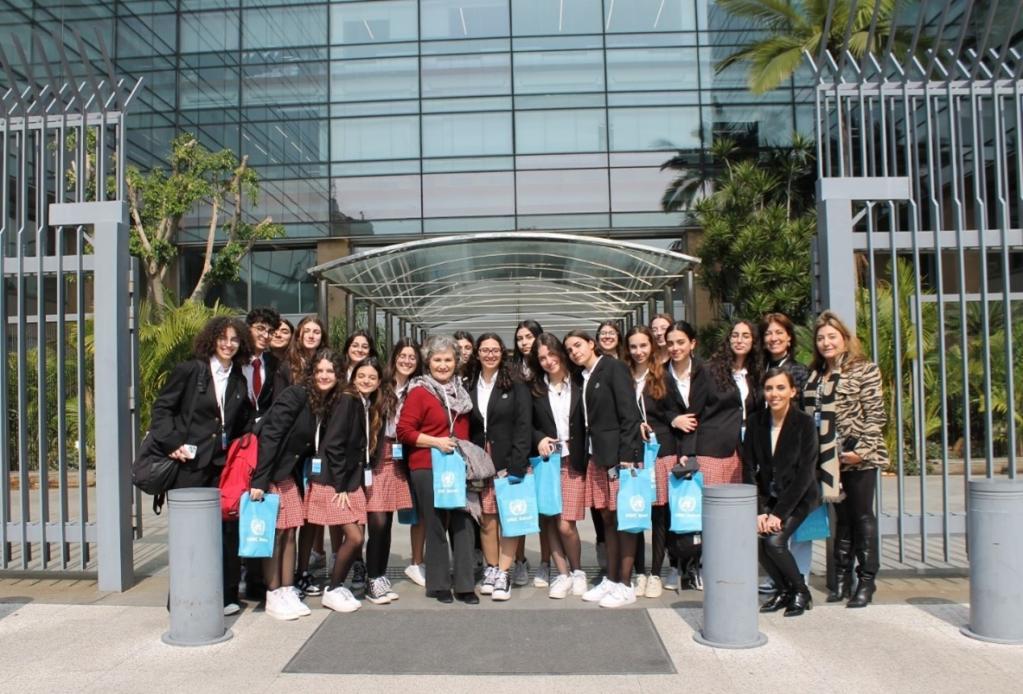
Story
15 February 2024
Young Diplomats in the Making: Lebanese Students Dive into the UN World
On February 6, 2024, the UN-House in Beirut opened its doors to a group of Grade 10 students from Collège des Saints-Cœurs Kfarhbab (SSCC-Kfarhbab), all participants in the Model United Nations (MUN) program. The visit offered them a unique peek into the intricate universe of international diplomacy, negotiations, and conflict resolution.
Meet-and-Greet Session with High UN Official
The day's highlight was the students' interaction with the UN Resident and Humanitarian Coordinator for Lebanon, Imran Riza. Organized by the UN Resident Coordinator’s Office (RCO) in Lebanon and the United Nations Information Centre in Beirut (UNIC Beirut), this meet-and-greet session served as a deep dive into the complexities of national and regional challenges as well as the essential skills for successful and effective UN leadership.
In his discussion with the young future diplomats, Riza emphasized the UN's commitment to engaging and empowering youth, sharing insights on various UN youth programs led by UN entities in Lebanon that help identify and nurture young leaders.
“Investing in youth is investing in the future,” he stressed.
When asked about the challenges facing the UN amid the spread of disinformation and anti-refugee sentiments, Riza emphasized the critical role of youth in combating hate speech, misinformation and disinformation. “I advise you to make good use of digital platforms and social media to limit the spread of mis/disinformation,” Riza urged the students, before delving into a set of skills and values needed for those aspiring to take up leadership roles in the UN in the future.
“Dreaming of Lebanon”: Learning through Virtual Reality
The visit included a screening of “Dreaming of Lebanon,” a VR documentary that offers an immersive glimpse into the aspirations of young Lebanese amidst challenging times. Produced by the Office of the United Nations Special Coordinator for Lebanon (UNSCOL) and the Innovation Cell at the United Nations Department of Political and Peacebuilding Affairs (UNDPPA), the film used 360-degree technology to bring human-centered stories of resilience and hope to life.
Students were particularly moved by the narratives of Josephine Abou Abdo and Batoul Hakim, whose stories of perseverance and commitment to Lebanon inspired them. "The documentary was a vivid lesson in hope and resilience, showing us that despite adversity, we can dream of and work towards a better future," shared student Paul Maaykel.
Insights into Negotiations and Conflict Prevention
The screening of the VR documentary was followed by an engaging session with UNSCOL experts, Pascale El-Kassis and Alaa Abdel-Aziz on negotiations and conflict prevention, who both introduced the students to real-world applications of negotiation, mediation, and conflict prevention strategies.
This interaction enriched the students’ understanding of these concepts and strategies, sparking lively debates and discussions that helped hone their leadership and communication skills.
Commenting on the session, Maurice Nasr said he was “impressed” by how UN strategies were formulated and implemented. As for Tia Azar, she described the session as “remarkably interactive.”
Reflecting on a Memorable Experience
The students unanimously appreciated the visit, highlighting its role in deepening their understanding of the UN's operations and the practical application of their MUN learnings. "This was a rare glimpse behind the scenes of international diplomacy, offering invaluable insights that go beyond the classroom," said student Carl Mchaylah.
Hoda Houssami, the MUN Coordinator and English teacher at SSCC-Kfarhbab, summed up the visit: “It was a rigorous, memorable, and impactful learning experience that broadened our students' horizons, equipping them with a deeper understanding of the UN's pivotal role in addressing global and local crises."
“Overall, the visit was unforgettable and incredibly enriching for everyone involved. From our arrival, we were met with exceptional care and professionalism,” added Elisabeth Boutros, the Head of Grade 9 and Grade 10 Division at SSCC Kfarhbab.”
This immersive experience not only educated these young minds on the complexities of global diplomacy and humanitarian efforts but also inspired them to envision their roles in crafting a better future for Lebanon and the world.
1 of 5
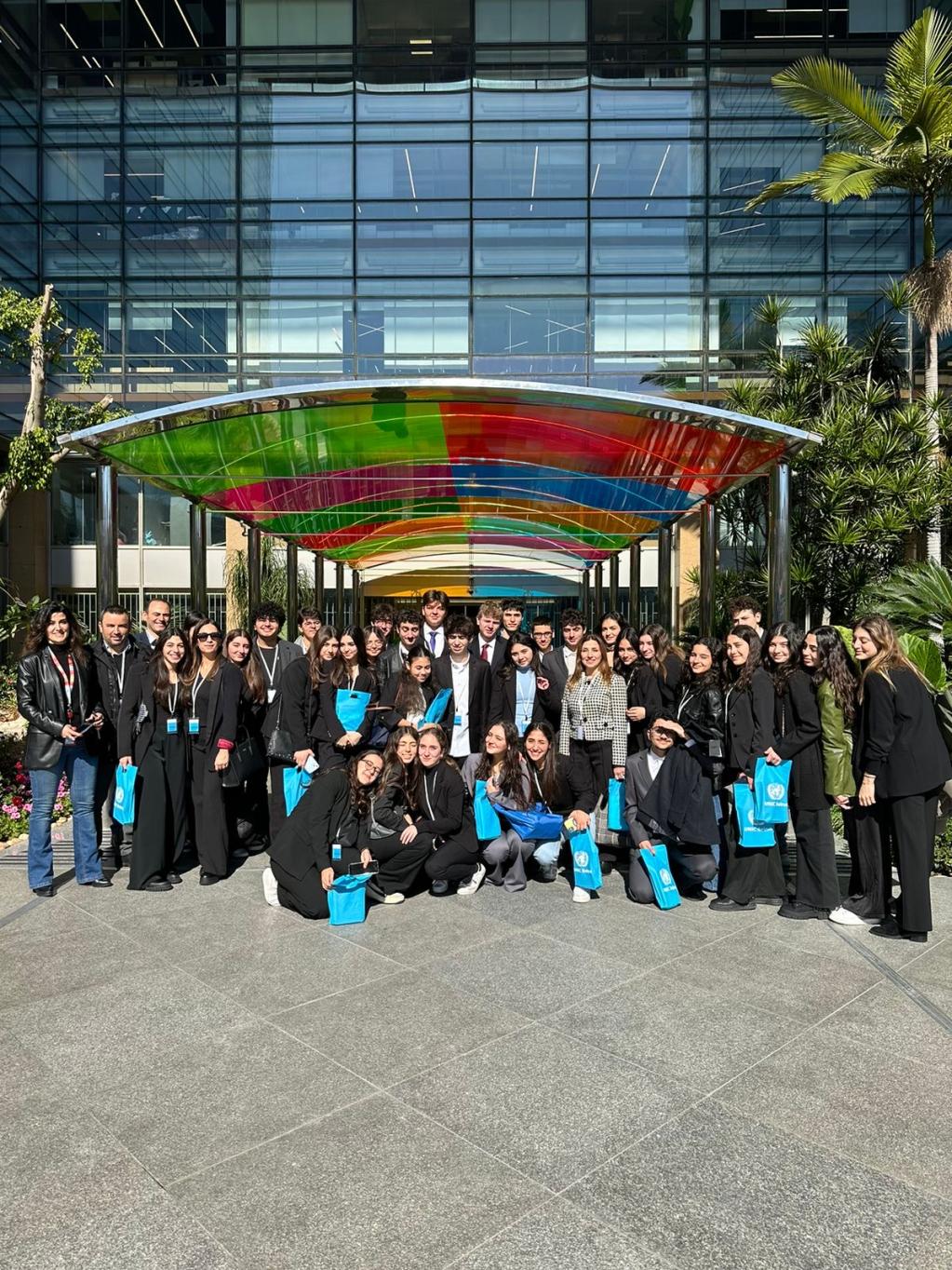
Story
11 December 2023
‘Dounia’: A Story of Hope Emerging from Lebanon’s Economic Crisis
‘We give our land so that it gives us back generously’
– says Dounia Bassil, an agricultural engineer and founder of Jouzourna small enterprise based in Smar Jbeil specializing in vegan, bio-pantry, and gluten-free products, as she describes her solid deep-rooted attachment to her land.
When Dounia registered for a UN training on accounting and business management back in 2020, she did not know that it would mark a turning point in her career. Dounia, who started a small farming project at a time when she lacked manufacturing skills and appropriate equipment that allow her to produce organic products, has now guaranteed herself a place among vegan-food producers in Lebanon.
Who is behind ‘Jouzourna’ enterprise/business? “I wanted to preserve my ancestors’ pantry-making techniques but wasn’t able to do that because I lacked the equipment and appropriate skills,” she said. However, with the resources, and technical skills provided by the UN through the Productive Sector Development Programme (PSDP), she explained how she started producing gluten-free pantry products and expanded the scope of her business to other organic products. The PSDP is a joint UN programme generously funded by the government of Canada under the Lebanon Recovery Fund, and co-implemented by six UN entities operating in Lebanon, namely the United Nations Industrial Development Organization (UNIDO), Food and Agriculture Organization of the United Nations (FAO), United Nations Development Programme (UNDP), International Labour Organization (ILO), UN Women, United Nations Children’s Fund (UNICEF). A UN Support saving small-sized business during times of crisis Dounia lacked appropriate equipment, such as agricultural and manufacturing materials, in addition to financial resources that would allow her to pursue and expand her work in agriculture and organic manufacturing. “When I started working in agriculture and manufacturing back in 2010, I did not have a penny, I borrowed a small amount of money that was only enough to formally register my enterprise.” However, driven by her unwavering passion and determination coupled with the support of the UN under PSDP, she was able to stay in her hometown, Smar Jbeil, and continue with farming, manufacturing, and distribution activities with the help of five women whom she hired on a full or part-time basis to help her undertake agricultural and food production work. Dounia distributes her products in Smar Jbeil and sells them in four shops specializing in organic products in Beirut, Jounieh, and Jbeil. The UN support to Dounia through this joint program came at a time when Lebanon was reeling under the impact of the Covid-19 outbreak, an unprecedented economic and financial crisis, and the devastating effects of the Beirut port explosions. With the active engagement of relevant UN agencies and local partners, including ministries, private companies, and civil society organizations, the PSDP has become a safe haven for farmers and small-scale enterprises based in Lebanon as it helped them improve their capabilities in agricultural production and processing and adopt environmentally friendly agricultural practices. “This joint UN development project, generously funded by our long-time partner Canada, is very timely amidst increased concerns regarding food security in Lebanon and the unfolding economic crisis, which is making access to financing difficult, the import of raw materials very costly, and the trade operations disrupted”, said the UN Deputy Special Coordinator, Resident and Humanitarian Coordinator for Lebanon, Imran Riza. “During my field visits, I saw firsthand how PSDP has been providing new sustainable ways of doing business with women at the forefront. The project helped young women and men to unleash their full potential in businesses by strengthening their local production, maximizing their productivity while applying new technologies, and adopting environmentally friendly practices”, he added. Dounia soaked up every bit of knowledge, nurturing her passion and fueling her drive to grow. The UN support was not limited to the first training on accounting and enterprise management that she took after filling out that online questionnaire, but went beyond that to include other training, such as those related to fruits and vegetables, dehydrating techniques, and export skills. This is in addition to licensing methods that allowed her to obtain an industrial license from the Ministry of Industry with UNIDO’s support. To expand her managerial skills, she also took part and benefitted from specialized training on entrepreneurship and learned how to pitch a business idea in no time. This culminated in being awarded the best environmental business by ILO and provided with training that helped her better use the grant and monitor the quality of her products. “This boosted my self-esteem,” she ascertains. What helped Dounia most develop her agricultural processes was the technical trainings offered by FAO on Good Agricultural Practices (GAP) at the “Farmers Field School”, and the agricultural inputs and personal agricultural protection equipment that enabled her to apply these practices. FAO is also helping Dounia to obtain a certificate in organic agriculture for each of her agricultural and food crops as per the European Union-organic regulation 2018/848, which enabled her to enter the market and sell her products. Concurrently, since empowering women is at the core of the PSDP overarching goals, UN Women provided a series of soft skills trainings on business leadership, management, self-confidence, conflict resolution, and response to sexual harassment, from which Dounia and other businesswomen benefited. Towards the end of the program, Dounia found herself equipped with the very essence of progress that meet her business aspirations. “Women in the productive sectors in Lebanon have great potential, and with our partners, Canada aims at supporting women-led micro and small enterprises, be it on the technical and/or financial levels, to fulfill their abilities,” said Mr. Jamie Schnurr, Head of Cooperation at the Government of Canada in Lebanon, clarifying that Canada has been in the sector of women’s economic participation for over five years now in Lebanon. “Canada is proud of the achievements under the Productive Sectors Development Programme (PSDP),” he ascertained. From producing two products to producing around 40 products and building new friendships Dounia faced various challenges at the beginning of her career. The spoilage of her products in the absence of preservatives and the lack of encouragement from her environment, in addition to the competition of foreign products for her local products, have seriously challenged her. However, she perceived these as obstacles to be conquered rather than barriers to her success: She persevered in her work, enhanced her technical capabilities, challenged her patriarchal surroundings, and continued to develop her products and expand her work. As her skills enhanced, her business flourished too. She was able to streamline her farming and production processes and increase the quality and quantity of her products. “When I started in 2010, my production was limited to two types of products, whereas now I am producing around fourty different products,” says Dounia with a sense of pride. "Thanks to this program, I no longer need to visit the Chamber of Commerce and Industry in Tripoli to rent equipment," she explains, because the UN has provided her with the necessary equipment, and skills that facilitated her work, such as the dehydration technique used in preparing pantry. In addition to the skills that Dounia acquired from the trainings, she confirms that the exchange of experiences and knowledge with other participants has benefited her in various fields. "I built friendships with other women who benefited from the program's activities; we even started buying raw materials from each other," she assures. The impact of these trainings was also reflected in the way she works, as she gained knowledge that enabled her to better understand the market, the different ways of competition, and pricing, in addition to calculating the cost and sales. “It is all about the will” Dounia asserts that her persistence and determination will not stop, but quite the opposite. She will continue to progress and work on new products, expressing her gratitude for the consistent support of the United Nations and the continuous motivation to move forward. Dounia's inspiring journey from being a simple farmer to a beacon of success provides an example of how the UN Productive Sector Development Programme is contributing to accelerating the progress towards the Sustainable Development Goals (SDGs) that Lebanon, among other countries, has committed to implement by 2030. Her journey also demonstrates the impact of this program on empowering women like Dounia and other women beneficiaries, whose products secured a prominent place in the Lebanese market. Another sheer example of how PSDP helped support the productive sectors in Lebanon amid the unfolding crisis and consequently contribute to Lebanon's economic recovery. “To all women out there who have businesses or even business ideas, do take the initiative and implement your ideas. Do not fear taking risks. You will surely get your way if you believe that the key to success is having a strong will and the appropriate resources and opportunity” – Dounia concludes with confidence. This story was written by Ms. Nadine Abi Zeid Daou, National Information Officer at RCO Lebanon/UNIC Beirut, with the support of Ms. Marwa El-Hajj, short-term communications specialist at UNIC Beirut. The video was produced by Mr. Georges Roukoz from UNIC Beirut.
Who is behind ‘Jouzourna’ enterprise/business? “I wanted to preserve my ancestors’ pantry-making techniques but wasn’t able to do that because I lacked the equipment and appropriate skills,” she said. However, with the resources, and technical skills provided by the UN through the Productive Sector Development Programme (PSDP), she explained how she started producing gluten-free pantry products and expanded the scope of her business to other organic products. The PSDP is a joint UN programme generously funded by the government of Canada under the Lebanon Recovery Fund, and co-implemented by six UN entities operating in Lebanon, namely the United Nations Industrial Development Organization (UNIDO), Food and Agriculture Organization of the United Nations (FAO), United Nations Development Programme (UNDP), International Labour Organization (ILO), UN Women, United Nations Children’s Fund (UNICEF). A UN Support saving small-sized business during times of crisis Dounia lacked appropriate equipment, such as agricultural and manufacturing materials, in addition to financial resources that would allow her to pursue and expand her work in agriculture and organic manufacturing. “When I started working in agriculture and manufacturing back in 2010, I did not have a penny, I borrowed a small amount of money that was only enough to formally register my enterprise.” However, driven by her unwavering passion and determination coupled with the support of the UN under PSDP, she was able to stay in her hometown, Smar Jbeil, and continue with farming, manufacturing, and distribution activities with the help of five women whom she hired on a full or part-time basis to help her undertake agricultural and food production work. Dounia distributes her products in Smar Jbeil and sells them in four shops specializing in organic products in Beirut, Jounieh, and Jbeil. The UN support to Dounia through this joint program came at a time when Lebanon was reeling under the impact of the Covid-19 outbreak, an unprecedented economic and financial crisis, and the devastating effects of the Beirut port explosions. With the active engagement of relevant UN agencies and local partners, including ministries, private companies, and civil society organizations, the PSDP has become a safe haven for farmers and small-scale enterprises based in Lebanon as it helped them improve their capabilities in agricultural production and processing and adopt environmentally friendly agricultural practices. “This joint UN development project, generously funded by our long-time partner Canada, is very timely amidst increased concerns regarding food security in Lebanon and the unfolding economic crisis, which is making access to financing difficult, the import of raw materials very costly, and the trade operations disrupted”, said the UN Deputy Special Coordinator, Resident and Humanitarian Coordinator for Lebanon, Imran Riza. “During my field visits, I saw firsthand how PSDP has been providing new sustainable ways of doing business with women at the forefront. The project helped young women and men to unleash their full potential in businesses by strengthening their local production, maximizing their productivity while applying new technologies, and adopting environmentally friendly practices”, he added. Dounia soaked up every bit of knowledge, nurturing her passion and fueling her drive to grow. The UN support was not limited to the first training on accounting and enterprise management that she took after filling out that online questionnaire, but went beyond that to include other training, such as those related to fruits and vegetables, dehydrating techniques, and export skills. This is in addition to licensing methods that allowed her to obtain an industrial license from the Ministry of Industry with UNIDO’s support. To expand her managerial skills, she also took part and benefitted from specialized training on entrepreneurship and learned how to pitch a business idea in no time. This culminated in being awarded the best environmental business by ILO and provided with training that helped her better use the grant and monitor the quality of her products. “This boosted my self-esteem,” she ascertains. What helped Dounia most develop her agricultural processes was the technical trainings offered by FAO on Good Agricultural Practices (GAP) at the “Farmers Field School”, and the agricultural inputs and personal agricultural protection equipment that enabled her to apply these practices. FAO is also helping Dounia to obtain a certificate in organic agriculture for each of her agricultural and food crops as per the European Union-organic regulation 2018/848, which enabled her to enter the market and sell her products. Concurrently, since empowering women is at the core of the PSDP overarching goals, UN Women provided a series of soft skills trainings on business leadership, management, self-confidence, conflict resolution, and response to sexual harassment, from which Dounia and other businesswomen benefited. Towards the end of the program, Dounia found herself equipped with the very essence of progress that meet her business aspirations. “Women in the productive sectors in Lebanon have great potential, and with our partners, Canada aims at supporting women-led micro and small enterprises, be it on the technical and/or financial levels, to fulfill their abilities,” said Mr. Jamie Schnurr, Head of Cooperation at the Government of Canada in Lebanon, clarifying that Canada has been in the sector of women’s economic participation for over five years now in Lebanon. “Canada is proud of the achievements under the Productive Sectors Development Programme (PSDP),” he ascertained. From producing two products to producing around 40 products and building new friendships Dounia faced various challenges at the beginning of her career. The spoilage of her products in the absence of preservatives and the lack of encouragement from her environment, in addition to the competition of foreign products for her local products, have seriously challenged her. However, she perceived these as obstacles to be conquered rather than barriers to her success: She persevered in her work, enhanced her technical capabilities, challenged her patriarchal surroundings, and continued to develop her products and expand her work. As her skills enhanced, her business flourished too. She was able to streamline her farming and production processes and increase the quality and quantity of her products. “When I started in 2010, my production was limited to two types of products, whereas now I am producing around fourty different products,” says Dounia with a sense of pride. "Thanks to this program, I no longer need to visit the Chamber of Commerce and Industry in Tripoli to rent equipment," she explains, because the UN has provided her with the necessary equipment, and skills that facilitated her work, such as the dehydration technique used in preparing pantry. In addition to the skills that Dounia acquired from the trainings, she confirms that the exchange of experiences and knowledge with other participants has benefited her in various fields. "I built friendships with other women who benefited from the program's activities; we even started buying raw materials from each other," she assures. The impact of these trainings was also reflected in the way she works, as she gained knowledge that enabled her to better understand the market, the different ways of competition, and pricing, in addition to calculating the cost and sales. “It is all about the will” Dounia asserts that her persistence and determination will not stop, but quite the opposite. She will continue to progress and work on new products, expressing her gratitude for the consistent support of the United Nations and the continuous motivation to move forward. Dounia's inspiring journey from being a simple farmer to a beacon of success provides an example of how the UN Productive Sector Development Programme is contributing to accelerating the progress towards the Sustainable Development Goals (SDGs) that Lebanon, among other countries, has committed to implement by 2030. Her journey also demonstrates the impact of this program on empowering women like Dounia and other women beneficiaries, whose products secured a prominent place in the Lebanese market. Another sheer example of how PSDP helped support the productive sectors in Lebanon amid the unfolding crisis and consequently contribute to Lebanon's economic recovery. “To all women out there who have businesses or even business ideas, do take the initiative and implement your ideas. Do not fear taking risks. You will surely get your way if you believe that the key to success is having a strong will and the appropriate resources and opportunity” – Dounia concludes with confidence. This story was written by Ms. Nadine Abi Zeid Daou, National Information Officer at RCO Lebanon/UNIC Beirut, with the support of Ms. Marwa El-Hajj, short-term communications specialist at UNIC Beirut. The video was produced by Mr. Georges Roukoz from UNIC Beirut.
1 of 5
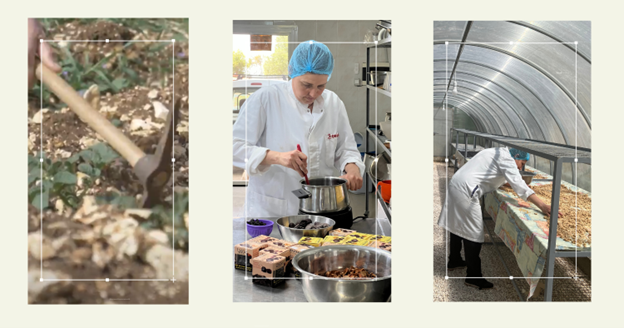
Press Release
23 April 2024
The European Union and United Nations improve the social and economic functions in Bickfaya-Mhaydseh
The protracted socioeconomic, financial, and political crises in Lebanon have severely impacted municipalities across the country. This has affected the services municipalities can provide and their efforts to preserve public infrastructures and facilities.The rehabilitation of Bickfaya-Mhaydseh town centre, realized through the “paths to improved livelihoods” project, was made possible by the European Union's substantial funding of US$ 466,000. This contribution facilitated the restoration of more than 3.9 kilometres of the town main road, which hosts more than 200 Micro, Small and Medium Enterprises (MSMEs), 15 percent of which are led by women entrepreneurs.The recently completed restoration will positively impact the lives of over 9,000 residents. Among the work completed was the rehabilitation of the public garden of the municipality and the planting of 25 landscaping trees, as well as the construction of pedestrian-friendly streets designed to attract a wide variety of shops and stores, thereby enriching the range of services available, providing new commercial opportunities for the local community. This includes upgrading existing infrastructure by establishing new and secure pedestrian crossings, rehabilitating the main road sidewalks, and installing more than 450 traffic and safety signs and more than 2,000 cat’s-eye pavement studs. “Our sincere thanks go out to all partners who have supported the restoration of the town centre of Bickfaya-Mhaydseh. It is our hope that this initiative is replicated as widely as possible across Lebanese cities and villages. Our community and everyone visiting Bickfaya-Mhaydseh have been made safer and more secure by this project,” said Mayor Nicole Gemayel, Bickfaya-Mhaydseh Municipality. “The urban regeneration of Bickfaya-Mhaydsseh town centre is part of UN-Habitat’s wider efforts in Lebanon to improve urban stabilization, regeneration and development. This intervention further highlights the positive impact of the MERP project on the long-term resilience of subnational authorities and the safety and security of their communities. I am delighted that Bickfaya-Mhaydsseh prioritised these interventions to enhance the overall wellbeing of its community, including ensuring access to safe and inclusive public spaces, which often provide an equal ground for people to come together,” said Taina Christiansen, Head of UN-Habitat Lebanon. "MERP has made significant strides in strengthening municipal capacities. It has enabled municipalities to deliver key services crucial for economic and social resilience. Today, we celebrate the success of the Bickfaya-Mhaydsseh 'Path to Improved Livelihoods' project, which not only revitalized urban areas but also fostered local economic development,” said Raghed Assi, Crisis Prevention and Crisis Response Programme Manager, UNDP Lebanon. “Through MERP, the EU is supporting local economic development by building resilient, inclusive communities and basic service delivery for all,” said Alessia Squarcella, Deputy Head of Cooperation at the EU Delegation to Lebanon. These initiatives were supported by a business development plan and a socioeconomic appraisal maximize the project’s impact through recommendations that included qualitative and quantitative assessments at the macro, meso, and micro levels, with a special focus on gender equality, people with disabilities, and vulnerable populations. The recommendations from the appraisal were used to strengthen the project’s final design and implementation.By facilitating a series of workshops for residents and shop owners in Bickfaya-Mhaydseh, the UN, in partnership with the Municipality of Bickfaya-Mhaydseh, has enhanced the project’s long-term socioeconomic impact. This collaboration has resulted in the formulation of new urban design guidelines. The municipality will implement these guidelines in future construction works to preserve the community’s character and historic essence.As part of the project, additional funds will be allocated to support implementing a vocational training program in crafts and food processing for entrepreneurs in Bickfaya-Mhaydseh which is expected to start in May 2024. These training courses aim to safeguard and maintain local heritage by transmitting traditional knowledge to future generations and reconnecting them with their heritage and cultural identity. Participants will also receive training in packaging, labelling, and marketing their products, paving the way for their future commercial success.END For more information please contact: Aline Kiwan, MERP Media and Communication Officer, at aline.kiwan@un.org, mobile 03-294070 Note to editors About the Municipal Empowerment and Resilience Project (MERP)MERP is a joint project by the United Nations Development Programme (UNDP) and the United Nations Human Settlements Programme (UN-Habitat). The Project is being implemented in partnership with the Ministry of Interior and Municipalities (MoIM) and funded by the European Union (EU). The project aims to strengthen the long-term resilience of subnational authorities in Lebanon as well as host communities and displaced persons affected by the Syrian crisis. Learn more about MERP at UNDP website and UN-Habitat website. About the United Nations Human Settlements Programme (UN-Habitat)UN-Habitat works in over 90 countries supporting people in cities and human settlements for a better urban future. Working with governments and local partners, its high impact projects combine world-class expertise and local knowledge to deliver timely and targeted solutions. The 2030 Agenda for Sustainable Development includes a dedicated Goal on cities, SDG 11 – to make cities inclusive, safe, resilient and sustainable. Learn more at www.unhabitat.org/lebanon or follow us on Twitter at @UNHabitatLB, on Facebook at UN-Habitat Lebanon and on Instagram at UNHabitatLB About the United Nations Development Programme (UNDP)UNDP is the leading United Nations organization fighting to end the injustice of poverty, inequality and climate change. Working with our broad network of experts and partners in 170 countries, we help nations to build integrated, lasting solutions for people and the planet.Learn more at www.lb.undp.org or follow on Twitter at @UNDP_Lebanon, on Facebook at UNDP Lebanon and on Instagram at UNDP_Lebanon About the European Union (EU)The European Union supports Lebanon’s stability, independence and sovereignty, its prosperity and democratic order. It strives also to help protect its environment and natural resources by supporting sustainable enterprise and development. The European Union is also committed to the promotion and protection of human rights in Lebanon including defending gender equality, children’s rights and freedom of expression. The EU Delegation in Lebanon represents the European Union to the Republic of Lebanon with the objective to maintain and develop mutual beneficial relations. It engages in political, social and economic development activities on behalf of the European Union and based on the most pressing needs of the country of Lebanon.Learn more on the work of the EU in Lebanon or follow on Twitter, Facebook and Instagram at @EUinLebanon
1 of 5
Press Release
23 April 2024
Strengthening child-friendly justice in Lebanon
The Ministry of Justice, in the framework of a project funded by the European Union and implemented by UNICEF, launched the “On Juvenile Justice”, a comprehensive electronic learning tool to enhance the capacities of judges on juvenile justice. The online training promotes child-friendly justice and strengthens the protection system for children and their best interests when in contact with the law. Through this project, judges in Lebanon will have access to a specialized, standardized, and comprehensive learning resource on child justice, in Arabic. This innovative course introduces videos, interactive activities and other appealing multimedia elements The content is based on the Lebanon legal framework as well as on the international principles of child justice and addresses the Lebanese justice system. Minister of Justice Judge Henry El-Khoury said: "The Ministry of Justice has always sought, in accordance with its roles and responsibilities, to ensure the protection for the children of Lebanon with the support of the international community and in coordination with various official bodies and civil society organizations. This is based on its belief in the concept of multidimensional humanitarian, societal, and legal protection. The importance of this program lies in its complementarity of the Lebanese judiciary's ongoing efforts to keep pace with developments in international legal systems, especially in the era of digital transformation we are currently experiencing. It further supports the efforts of the Ministry of Justice in this framework, notably those related to implementing decree of Law 81/2018 on electronic transactions, as well as being part of the continuous training of judges on concepts of human rights in general and children's rights in particular."The program consists of four modules: ‘children and the justice system’, ‘the child in danger’, ‘child victims and witnesses’, and ‘the child in conflict with the law’.“The European Union continues to support critical efforts to reform child justice in Lebanon. We have contributed to the development of this all-important e-course, following earlier support on the establishment of child-friendly facilities inside some of the Palaces of Justice’, said Martin Skylv, Deputy Head of Delegation at the European Union Delegation to Lebanon. He added: ‘The EU remains committed to supporting the justice sector and is ready to expand its level of assistance, as long as the Lebanese authorities uphold their commitment to reform”.The tool can be used by judges and other justice professionals at their own pace. It will also be available to future judges. At the end of the training program, part of a wider reform program, well trained and informed justice professionals will better address the issues faced by children in contact with the law.“Children in contact with the law are among the most vulnerable children in society. And when they find themselves in that situation, it is because we, as a society, have failed them somewhere,” said Edouard Beigbeder, UNICEF Representative in Lebanon. “Since 2018, we partnered with the Ministry of Justice and the European Union to strengthen and improve the child justice system in Lebanon to address the needs of children in contact with the law and to make the justice system more child-friendly and bring it in line with international standards. While we celebrate these results, we remain committed to continuing to work towards a child justice system that is accessible, adapted to and focused on the needs and the rights of children, and that minimizes the risk of harm inflicted on them during justice proceedings”. ENDFor more information please contactMaya Outayek, moutayek@unief.org +96170190634Blanche Baz, bbaz@unicef.org +961 3 331 874 About UNICEFWorking in Lebanon for over 70 years, UNICEF works in some of the world’s toughest places, to reach the world’s most disadvantaged children. Across more than 190 countries and territories, we work for every child, everywhere, to build a better world for everyone. For more information about UNICEF Lebanon and our work for children, visit www.unicef.org/lebanon
1 of 5
Press Release
16 April 2024
Celebrating Results of the Joint UN Productive Sectors Development Programme
The event was attended by Mr. George Bouchikian, Lebanese Minister of Industry, Mr. Mohamad Abou Haidar, General Director of the Ministry of Economy and Trade and representative of Minister Amin Salam, and Mr. Salem Darwich, Advisor to and representative of the Minister of Agriculture Abbas Haj Hassan, in addition to Mrs. Stefanie McCollum, Ambassador of Canada to Lebanon, and Mr. Imran Riza, UN Resident and Humanitarian Coordinator in Lebanon. Representatives of local authorities, the private sector, UN entities, and media outlets also attended the event. Implemented by six UN entities, namely UNIDO, FAO, UN Women, UNDP, UNICEF, and ILO, and generously funded by the Government of Canada, the PSDP helped create jobs and economically empower women and youth in the agricultural and agri-food sectors in Lebanon. In his opening remarks, Minister Bouchikian stressed PSDP's success in supporting Lebanon’s productive sectors and in promoting innovation and investment in target areas, saying: "The impact of the programme goes beyond boosting direct economic growth, contributing to improved living standards and creating new jobs, leading to social and economic stability in the regions that are most in need." In his speech, Bouchikian also praised the achievements of the "Lebanon Exports Academy" established under PSDP, which helped enhance the export capacities of entrepreneurs and farmers and opened access to new markets. “We gather today to celebrate the successful conclusion of the Productive Sectors Development Programme, recognizing the pivotal role of the agriculture sector amidst economic challenges. Through PSDP, we've fortified job creation and food security, ensuring access to sustenance and prosperity for all,” said Abou Haidar in his opening remarks. “With the support of the LEBTRADE team, we've identified new markets for Lebanese products, crafted commercial roadmaps, and facilitated export processes. This aligns with our strategy to empower Small and Medium Enterprises (SMEs) and bolster our trade balance,” said Abou Haidar, renewing the Ministry’s commitment to a “resilient Lebanon, fostering growth and opportunity for all.” For his part, Darwich thanked the Canadian government and the UN entities for their generous and unwavering support throughout the implementation of the programme. He also highlighted PSDP’s role and impact on the beneficiaries who provided positive feedback to the ministry, particularly for the acquired skills, and access to new customers and international markets. “The ministry is always looking to close the gap in the implementation of agricultural projects through funding from donors and UN entities. The ministry will soon announce a work plan for the coming years on priorities for the agricultural sector and food security in Lebanon,” he concluded in his opening remarks.For her part, Ambassador McCollum stated: “The PSDP stands as a testament to Canada's steadfast commitment to bolstering Lebanon's productive sectors and fostering economic well-being, particularly for the vulnerable women working in these sectors. By investing in people, particularly those in rural areas, and prioritizing sustainable productive sectors of the economy, we chart a course towards a more prosperous and resilient future for all.” The ceremony featured the distribution of awards to 11 partners, including high-achieving beneficiaries from PSDP, recognizing their outstanding contributions to the growth and development of Lebanon's agricultural and agri-food sectors in general, and the success of the programme in particular. In his opening remarks, Riza highlighted the timeliness of the programme amidst increased concerns regarding food security in Lebanon and the unfolding economic crisis, which is making access to financing difficult and the import of raw materials very costly. "In times of crisis, sustainable solutions are paramount,” he said. “PSDP exemplified the power of collaboration and innovation in supporting economic growth and empowering youth and women", he added. The event also included a short presentation of the PSDP's main results and achievements, and a Panel Discussion with the participation of five PSDP beneficiaries, who presented some inspiring stories of change and success resulting from the programme’s activities. The closing ceremony at the UN House was followed by the inauguration of the PSDP Booth at HORECA by Minister Bouchikian representing H.E. Caretaker Lebanese Prime Minister Najib Mikati who stated that: “PSDP participation in HORECA is an important example of the needed support today for our productive sectors, private sector and farmers.” Highlighting the government’s commitment to continue collaboration with the UN and partners in supporting similar initiatives in the future, the minister thanked Canada for its generous support to PSDP through the Lebanon Recovery Fund. “We hope to continue our collaboration going forward,” he stressed.Bouchikian was also joined by Mr. Walid Nassar, Lebanese Minister of Tourism, Ambassador McCollum and UN Resident Coordinator Riza in the inauguration of the PSDP booth that featured agri-food products of over 30 businesses, start-ups, and farmers showcasing a wide range of Mouneh, fruits, and vegetable products. Moving forward, the successful conclusion of the PSDP sets a strong foundation for continued collaboration and innovation in driving sustainable development and prosperity in the productive sectors and will set the stage for future similar initiatives.
1 of 5
Press Release
08 April 2024
Joint Statement of UN Special Coordinator for Lebanon and UNIFIL Head of Mission on 6 months since the exchanges of fire across the Blue Line began
It is six months since the exchanges of fire across the Blue Line began, and continue unabated, taking a heavy toll on both sides. The lives of thousands of people have been profoundly affected. Tens of civilians have tragically lost their lives while many more have lost their homes, their livelihoods and any sense of certainty for the future. The unrelenting cycle of strikes and counterstrikes in breach of the cessation of hostilities constitute the most serious violation of Security Council Resolution 1701 since its adoption in 2006. The gradual expansion in the scope and scale of the confrontations well beyond the Blue Line significantly raises the risk of miscalculation and further deterioration of an already alarming situation. The violence and suffering has gone on too long. It must stop. We urgently appeal to all sides to recommit to the cessation of hostilities under the framework of resolution 1701 and avail of all avenues to avoid further escalation while there is still space for diplomacy.It is also imperative to focus anew on the overarching objective of a permanent ceasefire and long-term solution to the conflict. A political process, anchored in the full implementation of Resolution 1701, is now more crucial than ever to address the root causes of the conflict and ensure long-term stability. The United Nations stands ready to support such efforts.
1 of 5
Press Release
28 March 2024
Media Quote by UN Humanitarian Coordinator Imran Riza related to the unfolding events in South Lebanon
Addressing the unfolding events in South Lebanon, where airstrikes have claimed numerous civilian lives, the United Nations Humanitarian Coordinator for Lebanon, Imran Riza, stated:The tragic events of the past 36 hours have resulted in a significant loss of life and injuries in south Lebanon.Up to 11 civilians were killed in a single day, including 10 paramedics.I am deeply disturbed by the repeated attacks on health facilities and health workers who risk their lives to provide urgent assistance to their local communities.Attacks on healthcare violate international humanitarian law and are unacceptable.The rules of war are clear: civilians, including healthcare workers, must be protected.Civilian infrastructure, including health facilities, must be protected.Healthcare is not a target. Civilians are not a target.-END-
1 of 5
Latest Resources
1 / 11
Resources
07 March 2024
1 / 11

